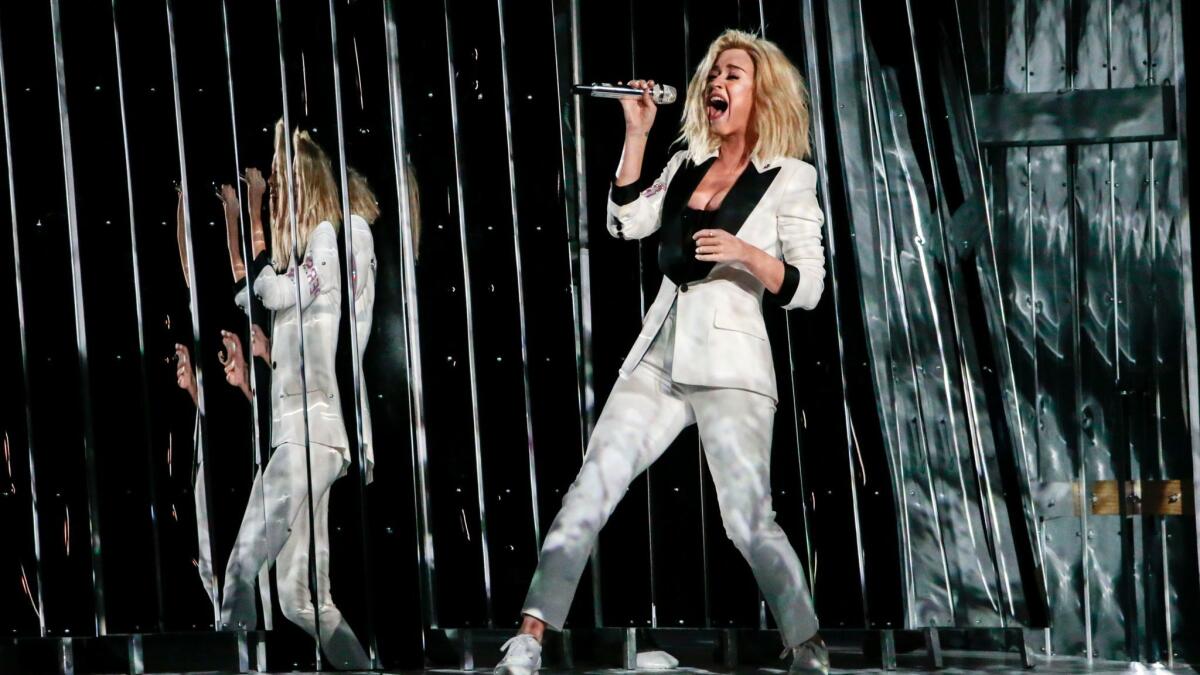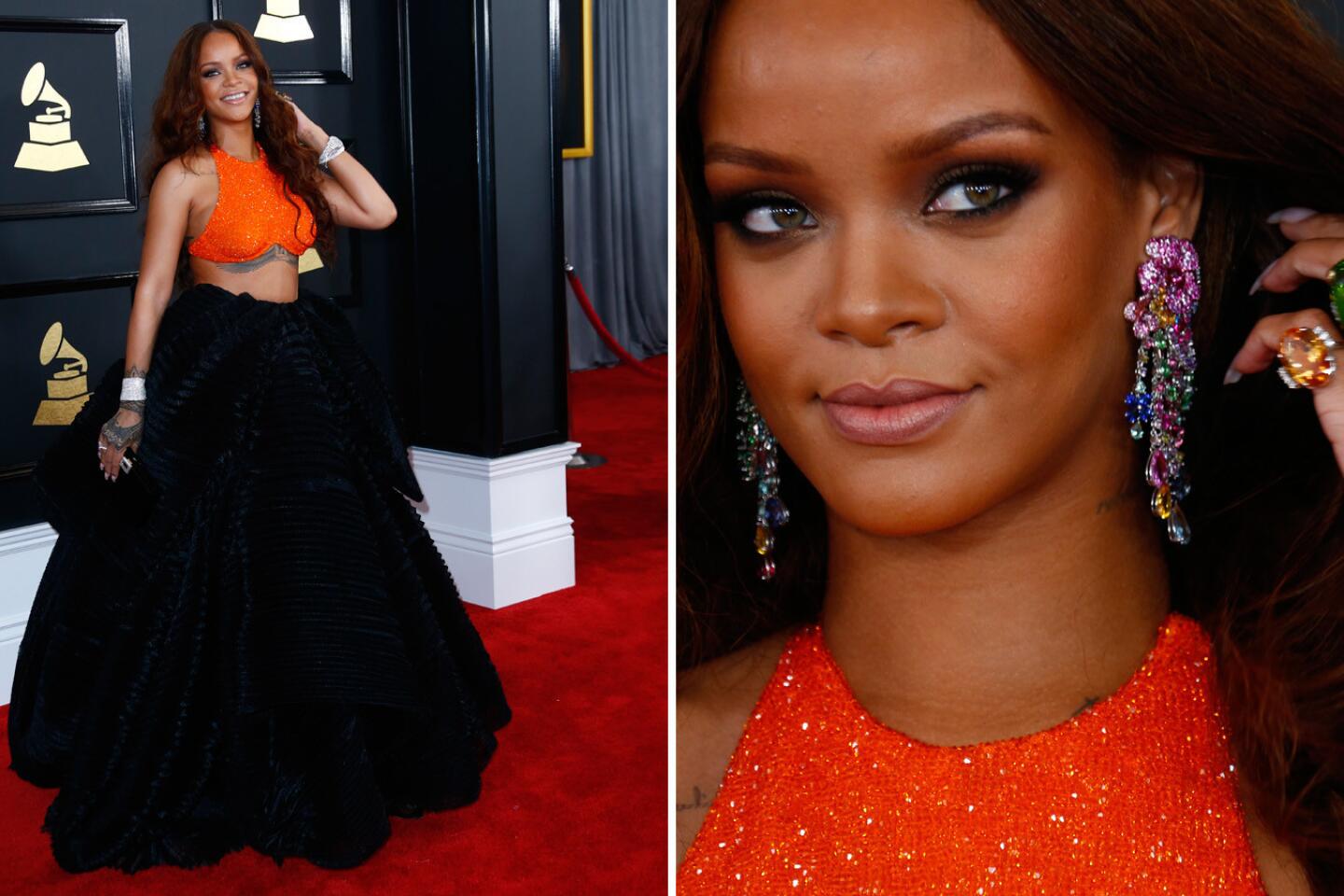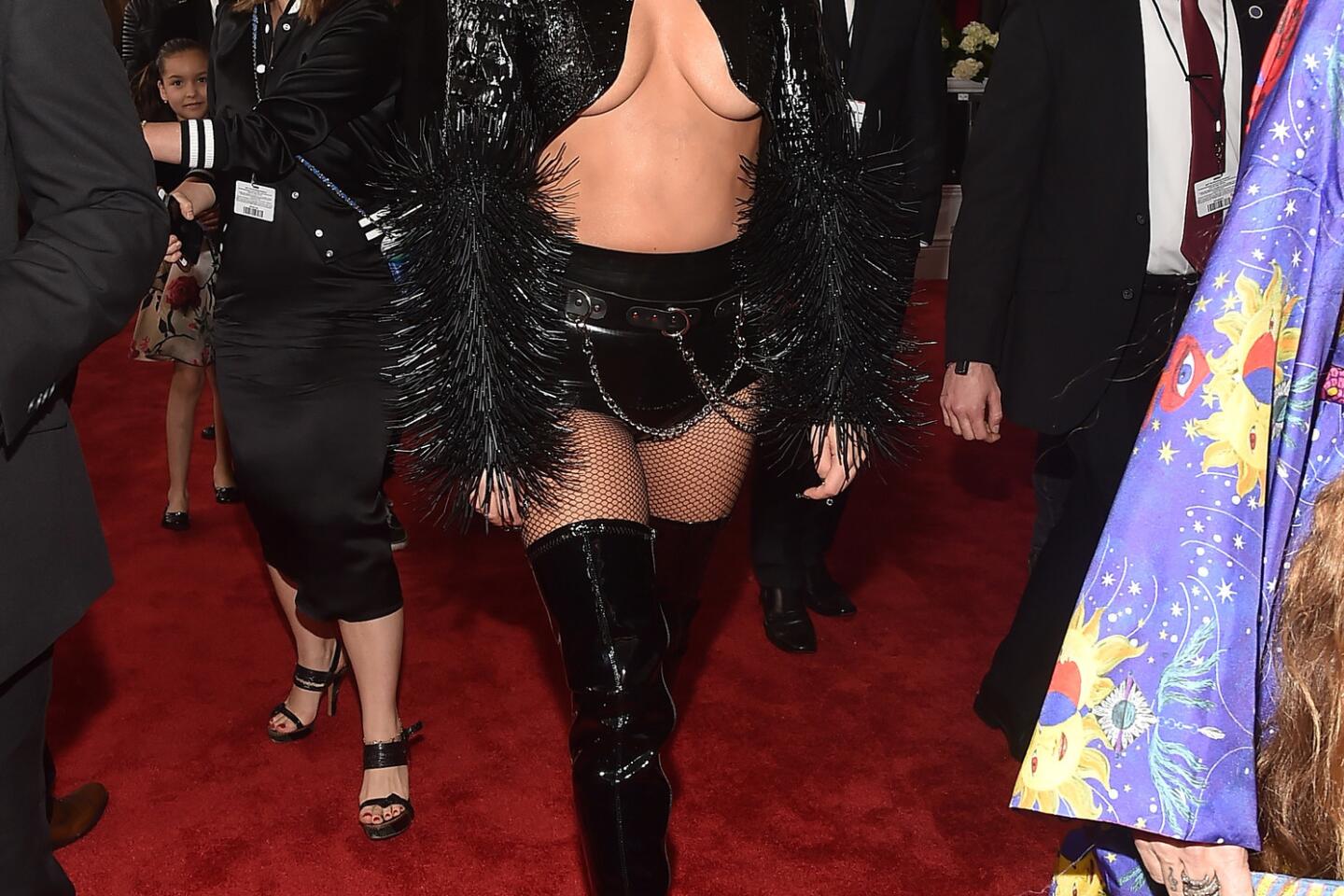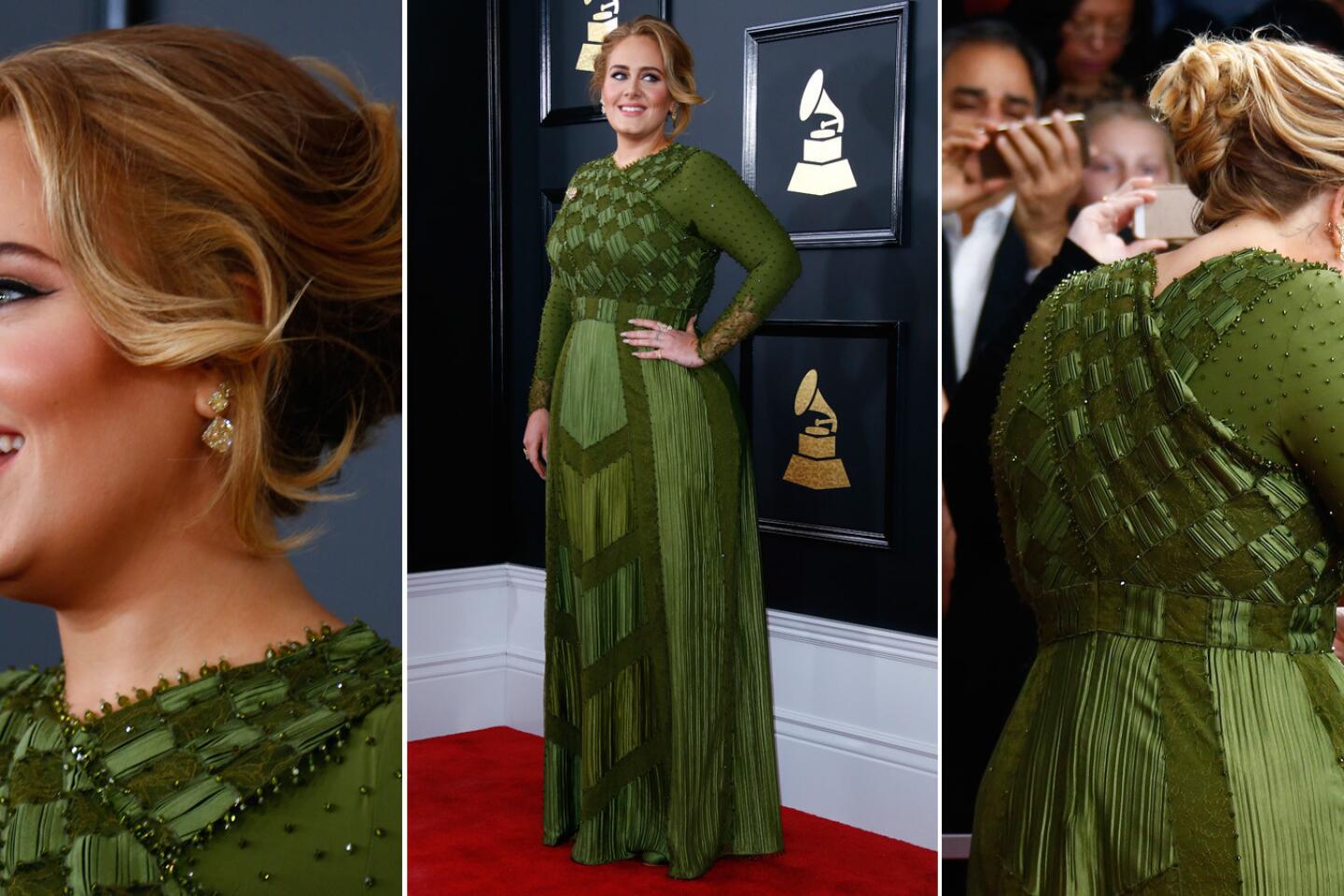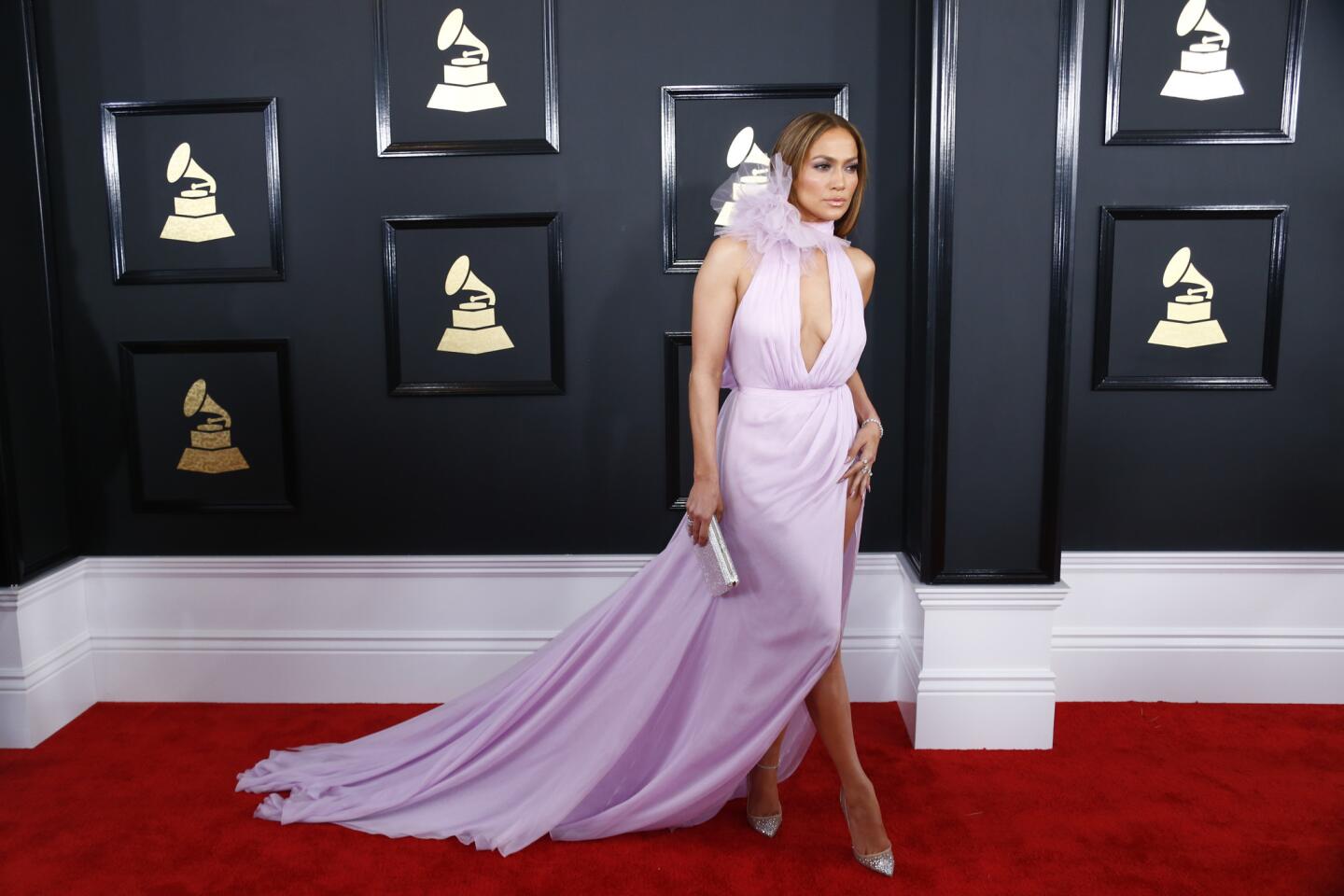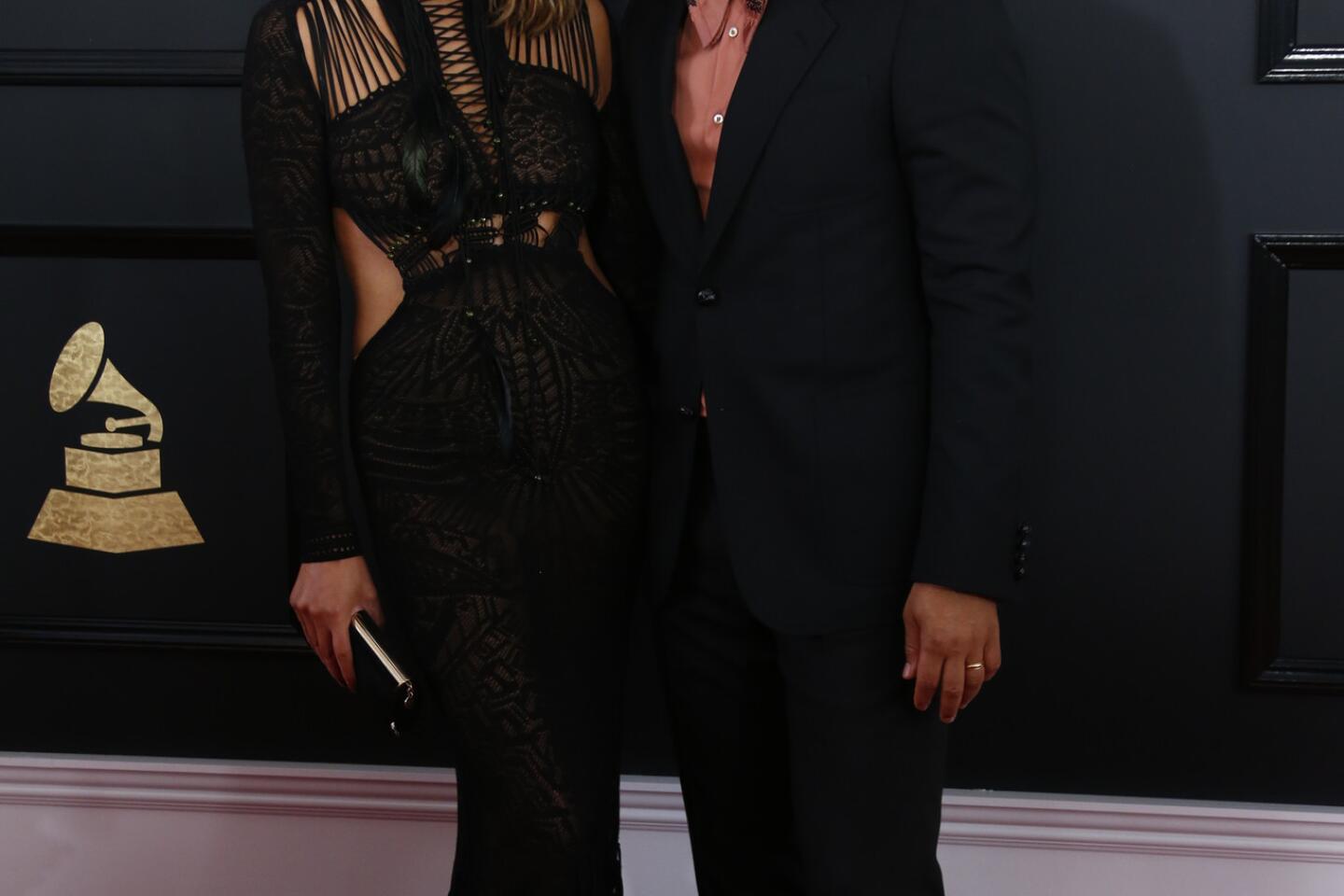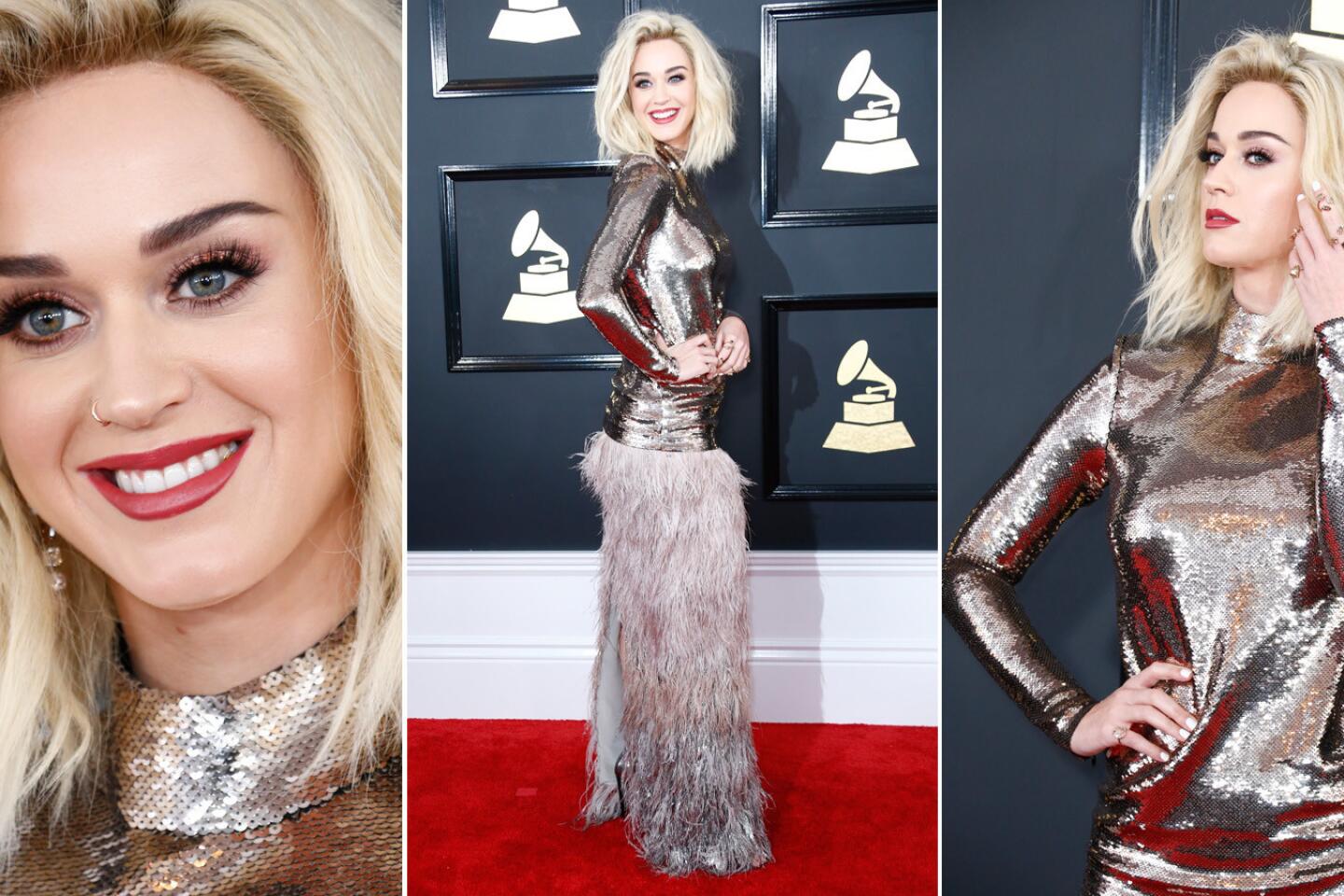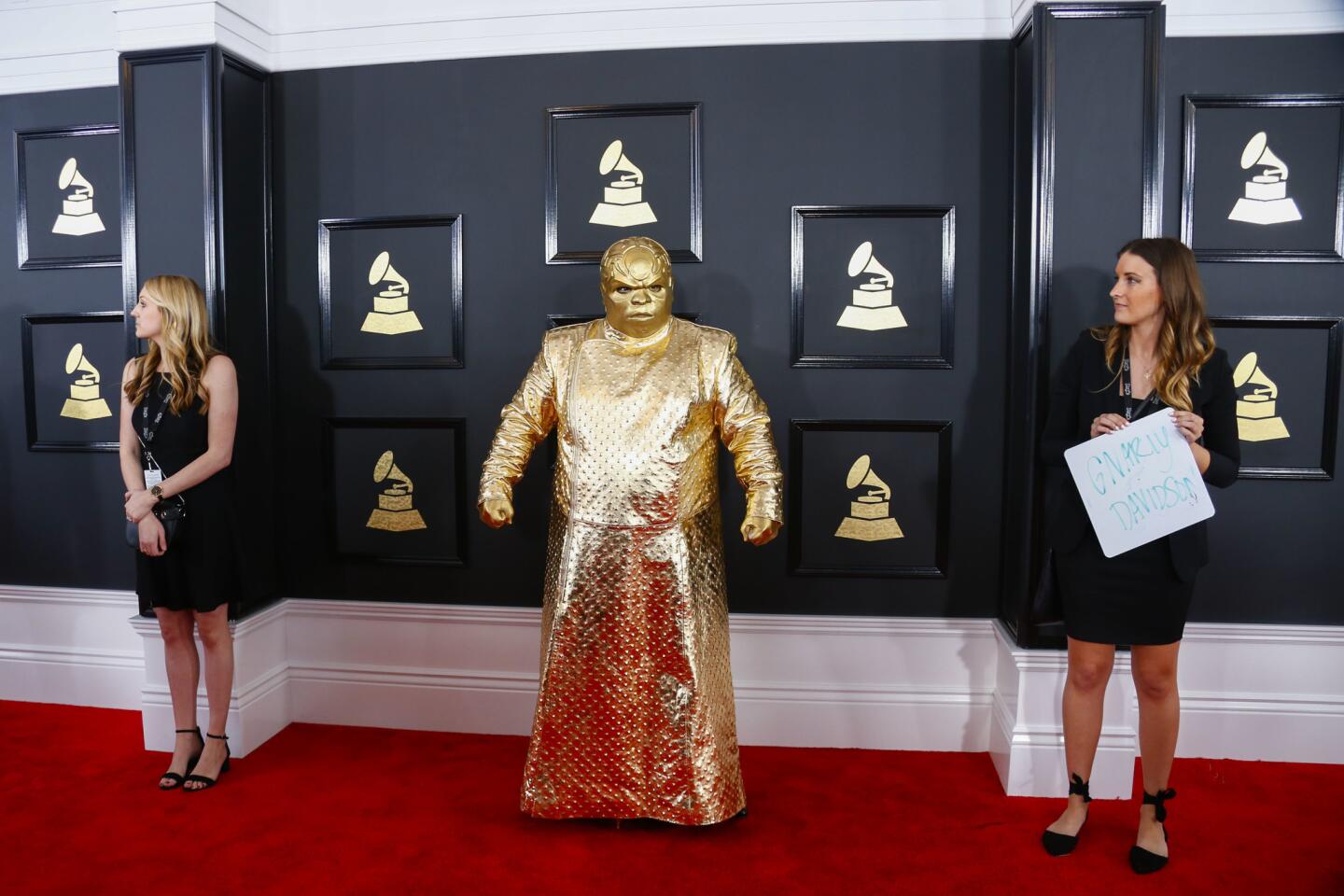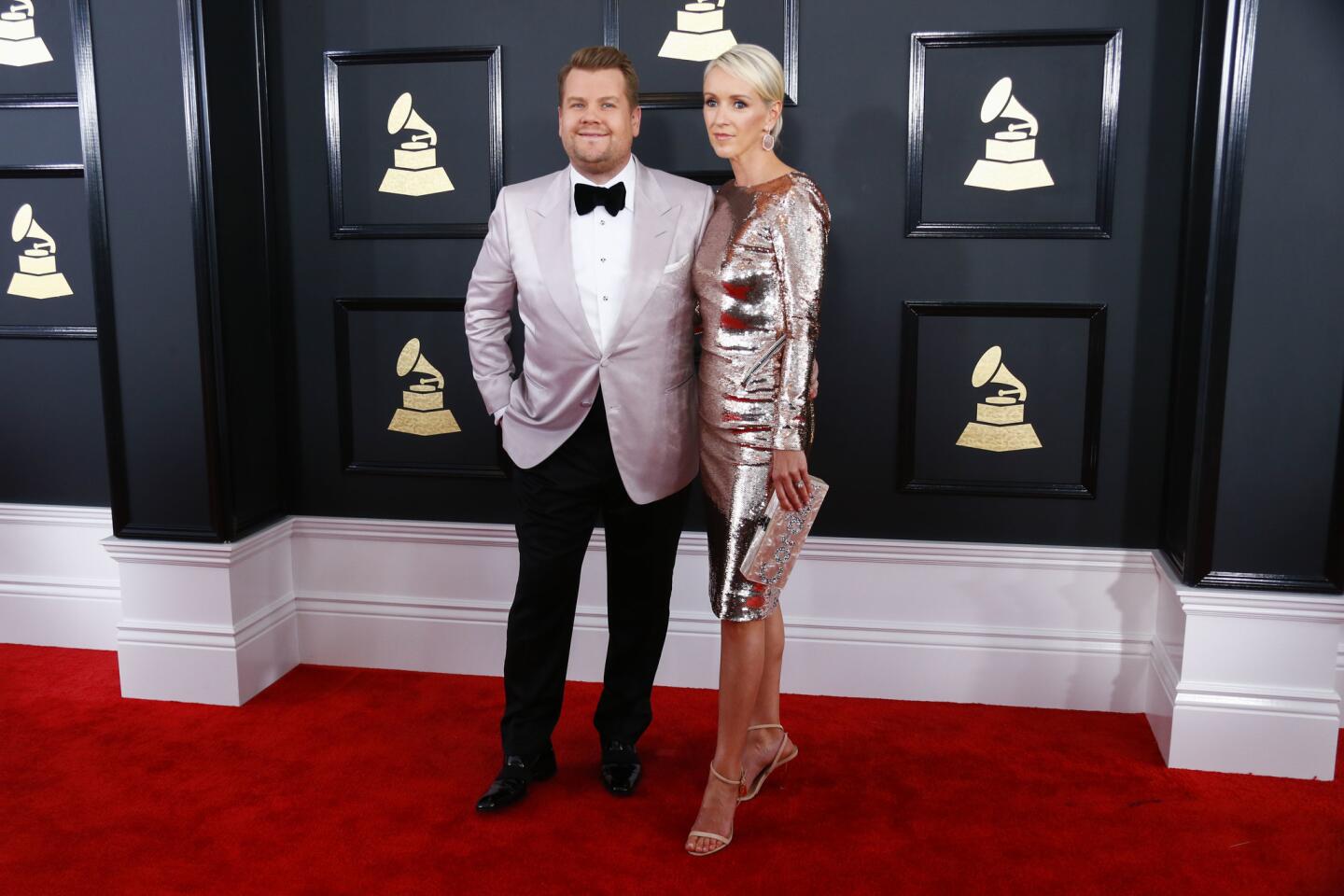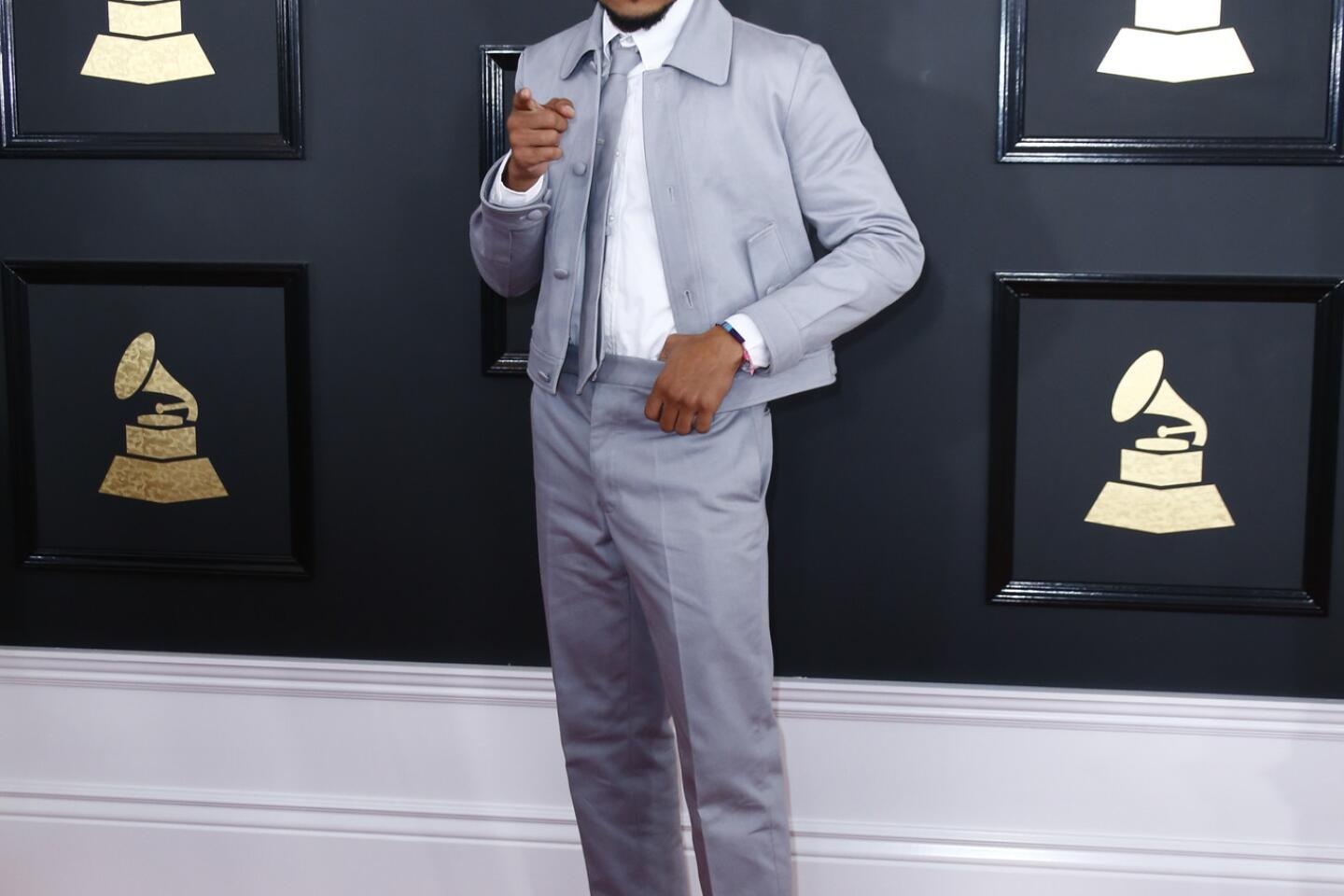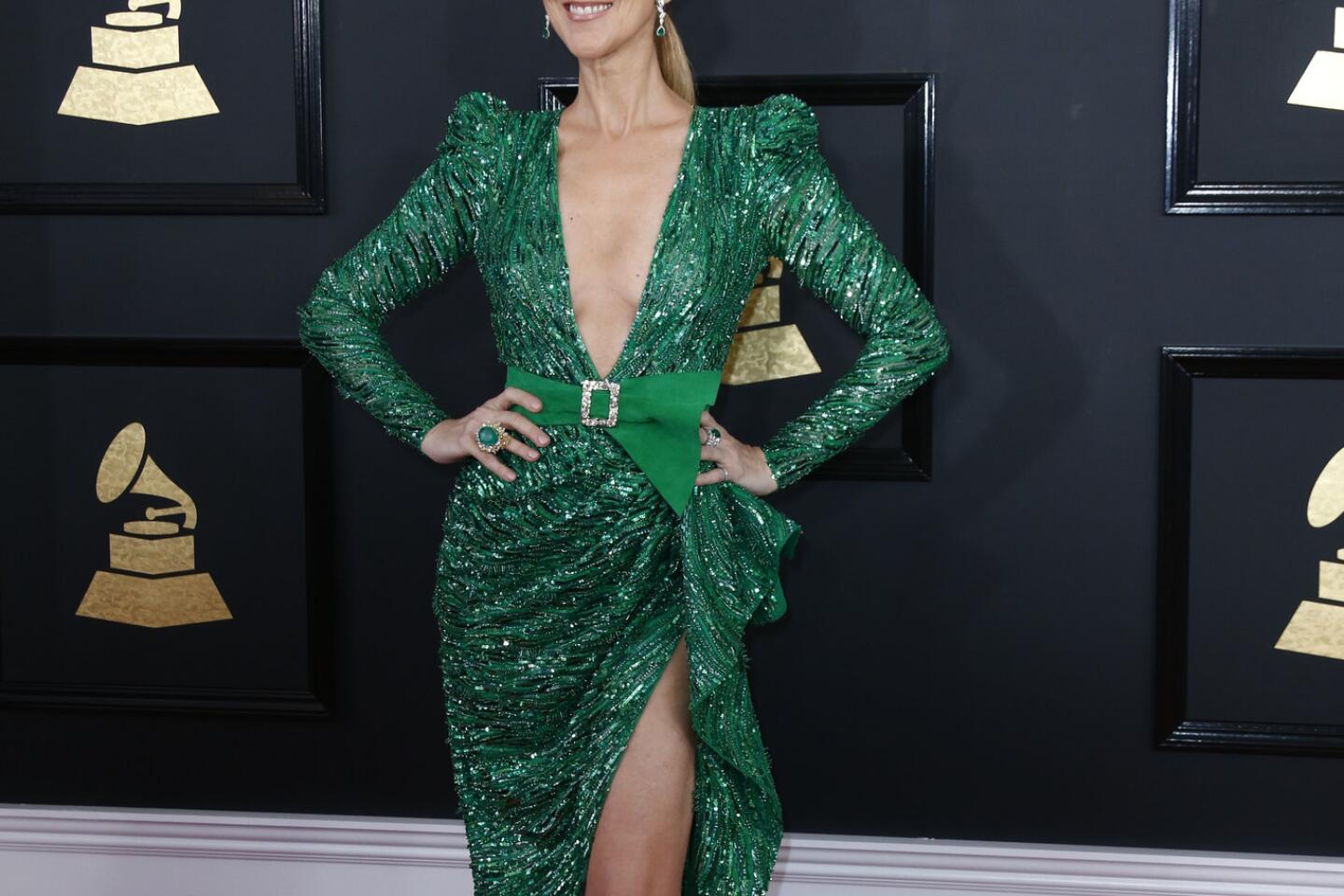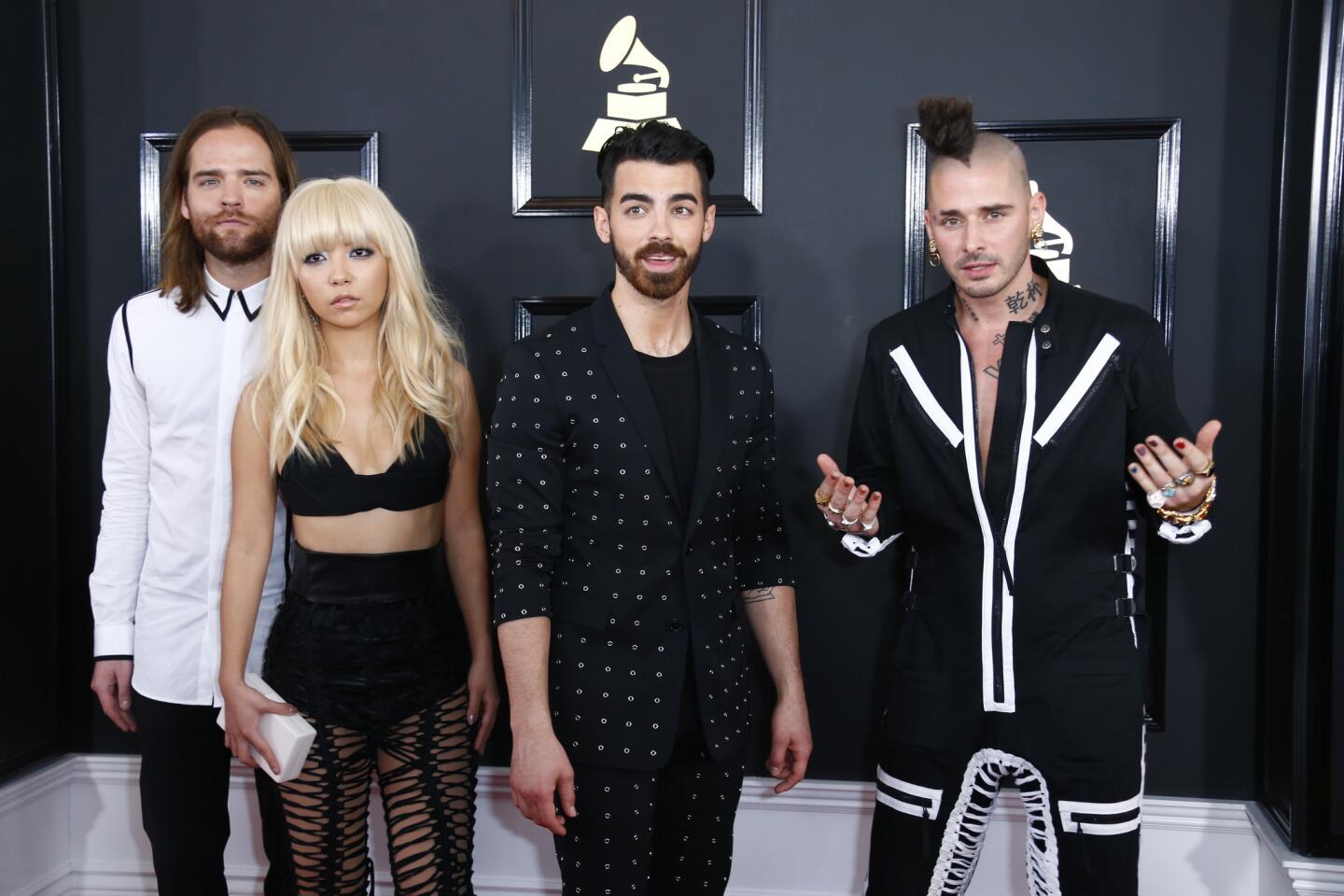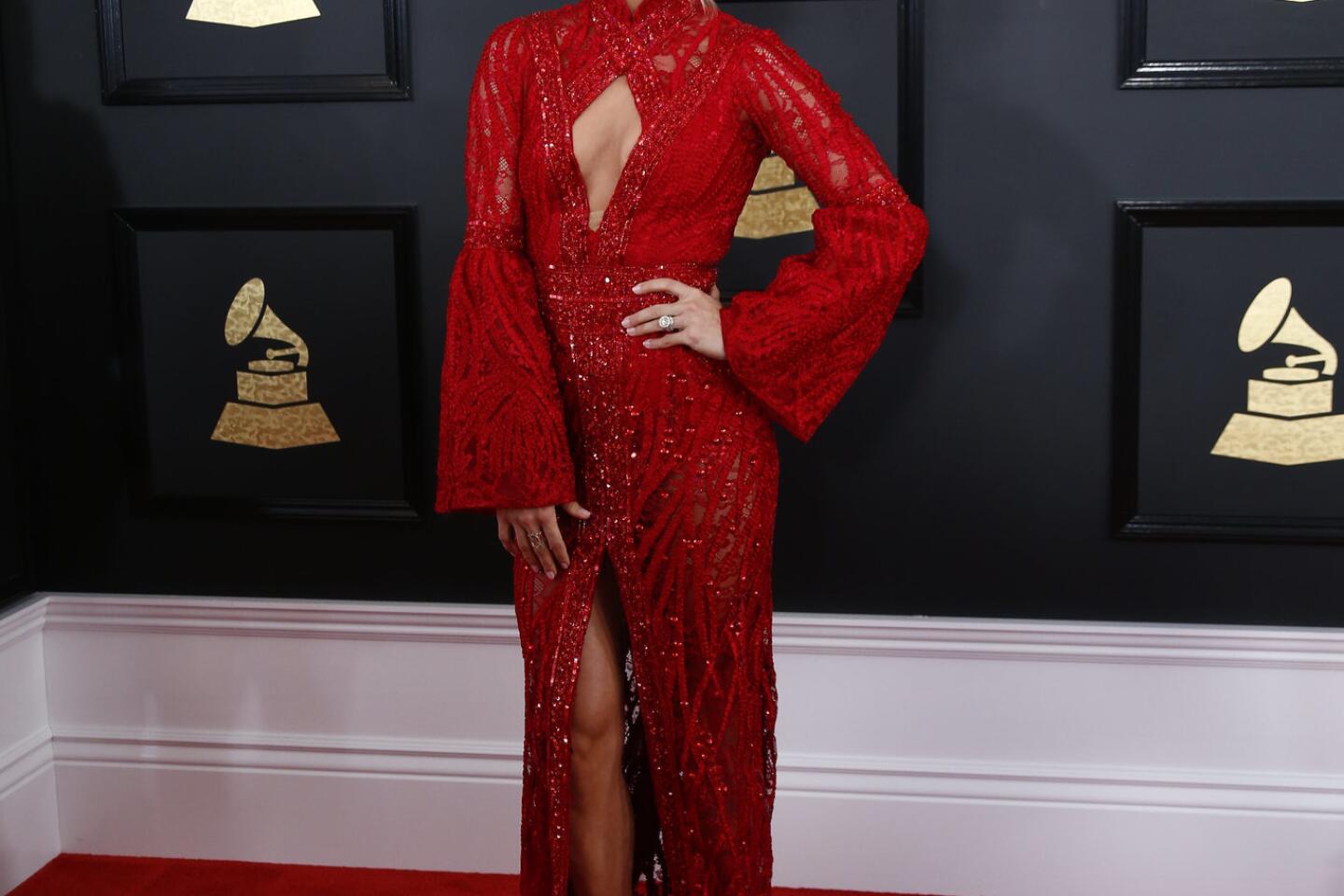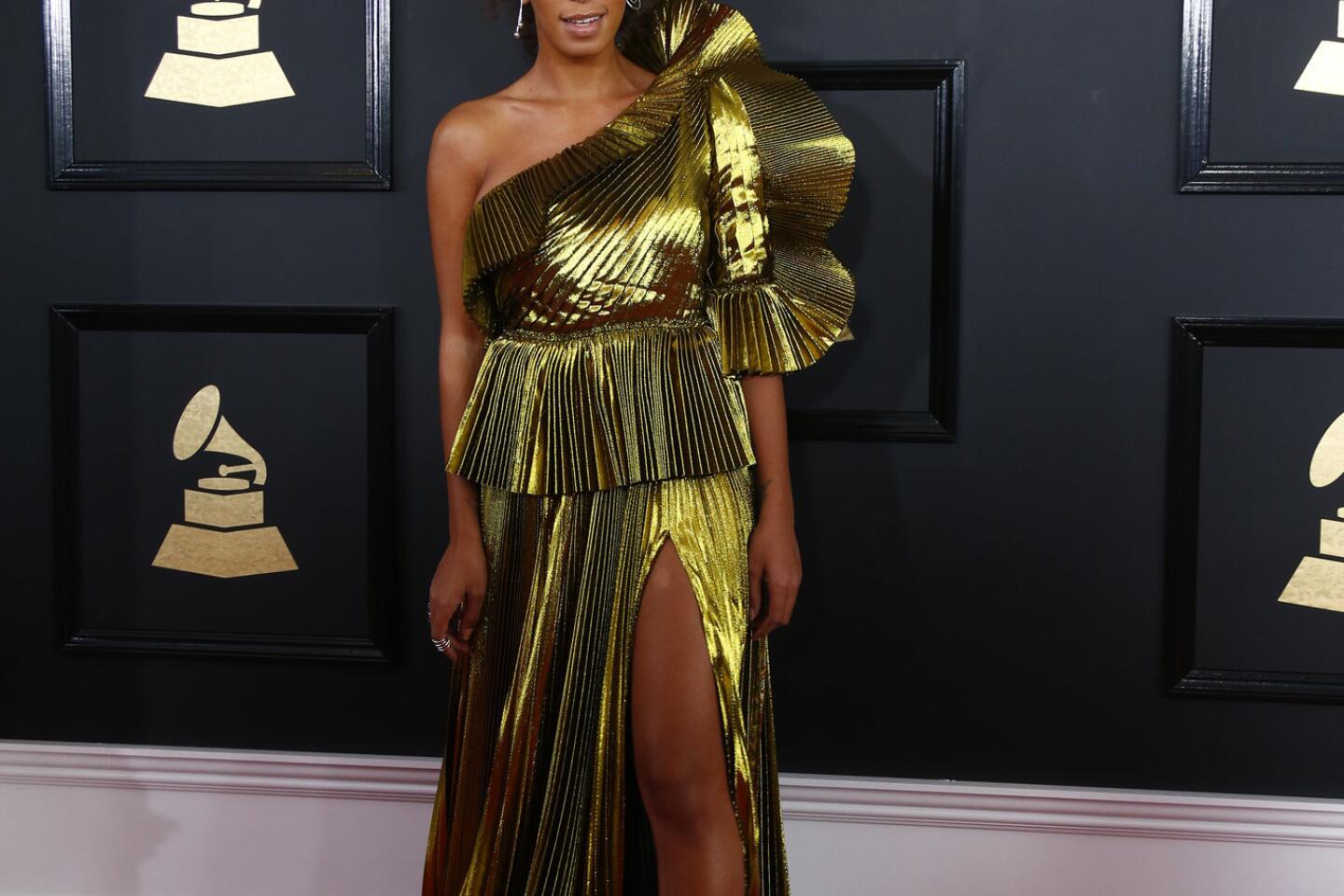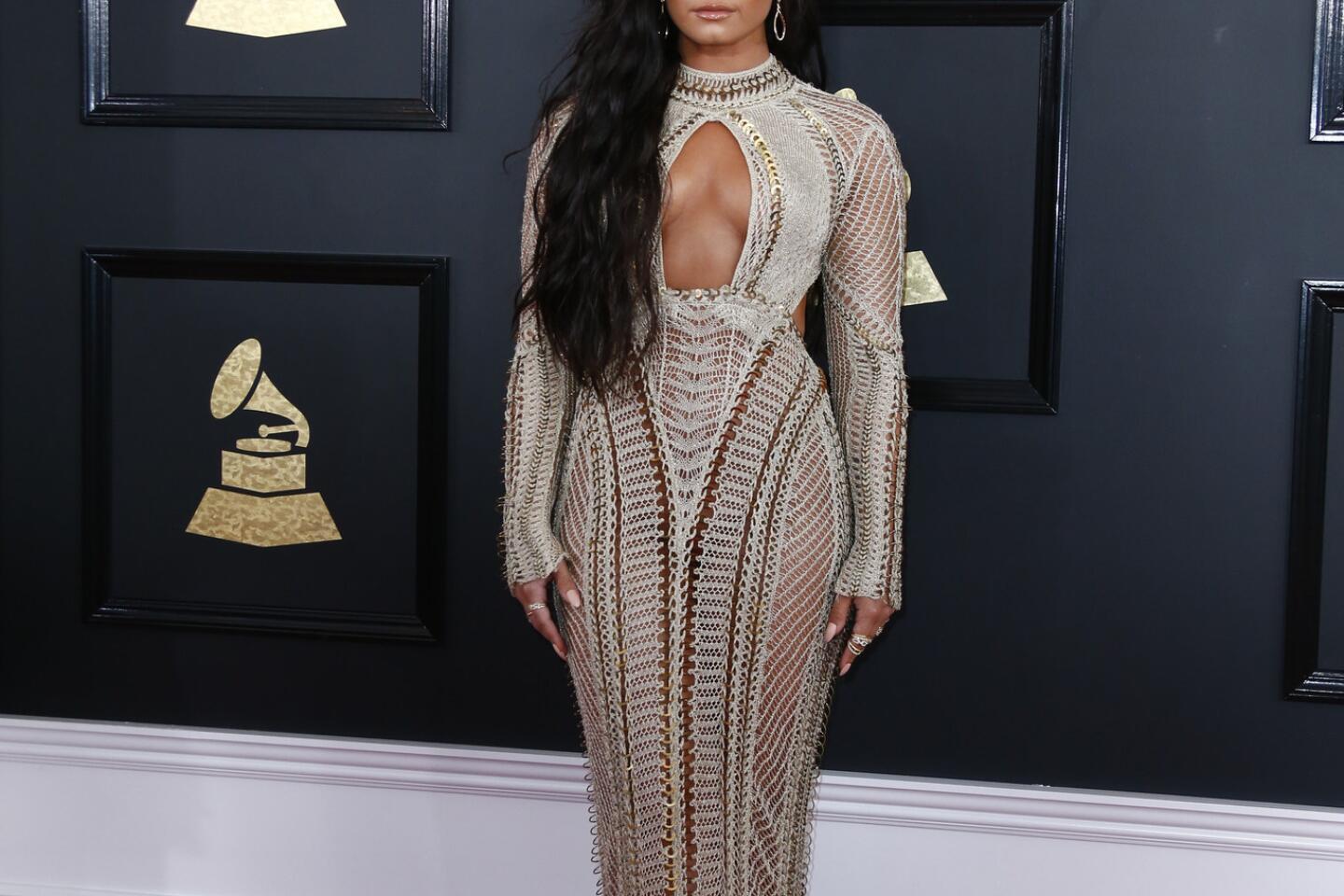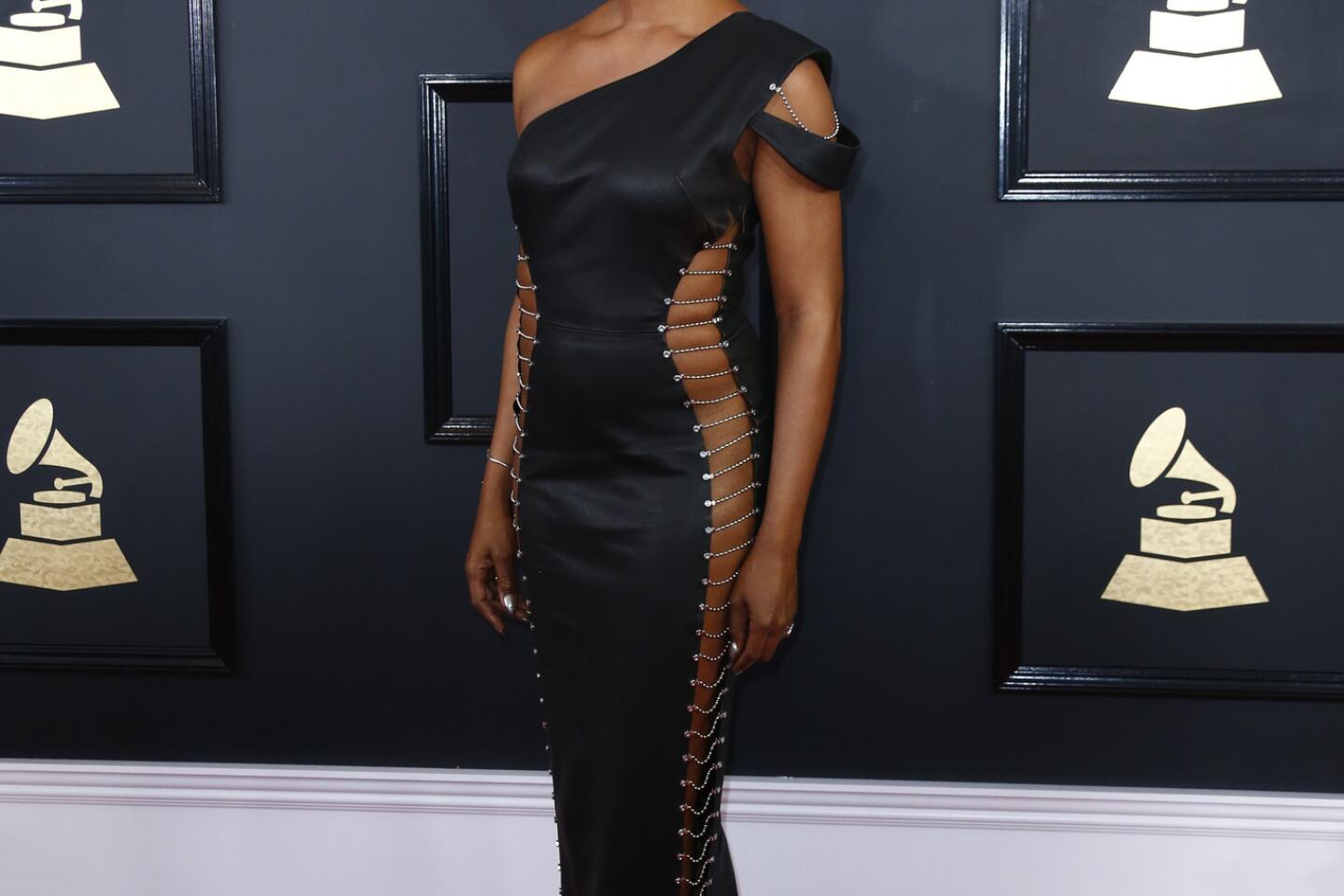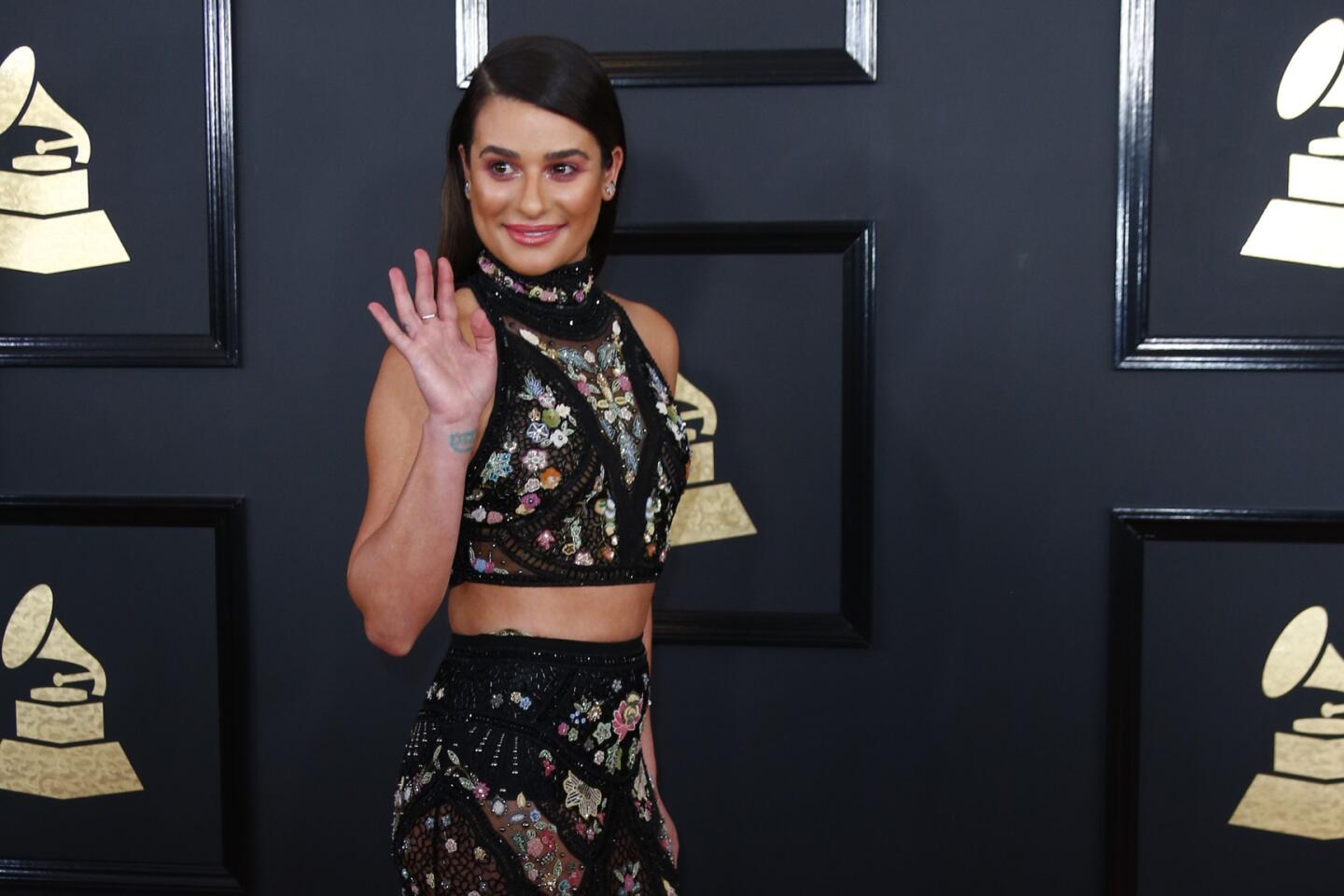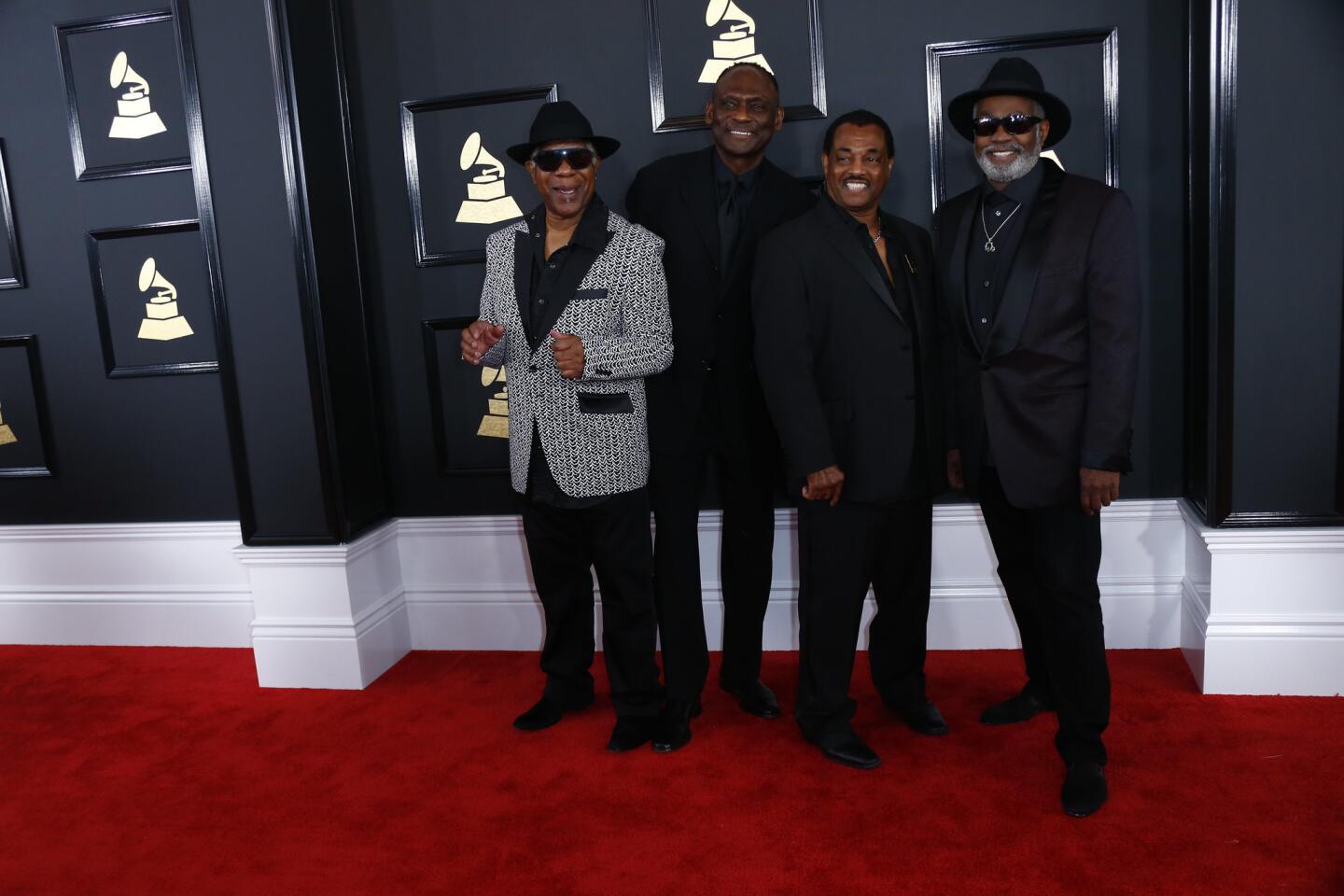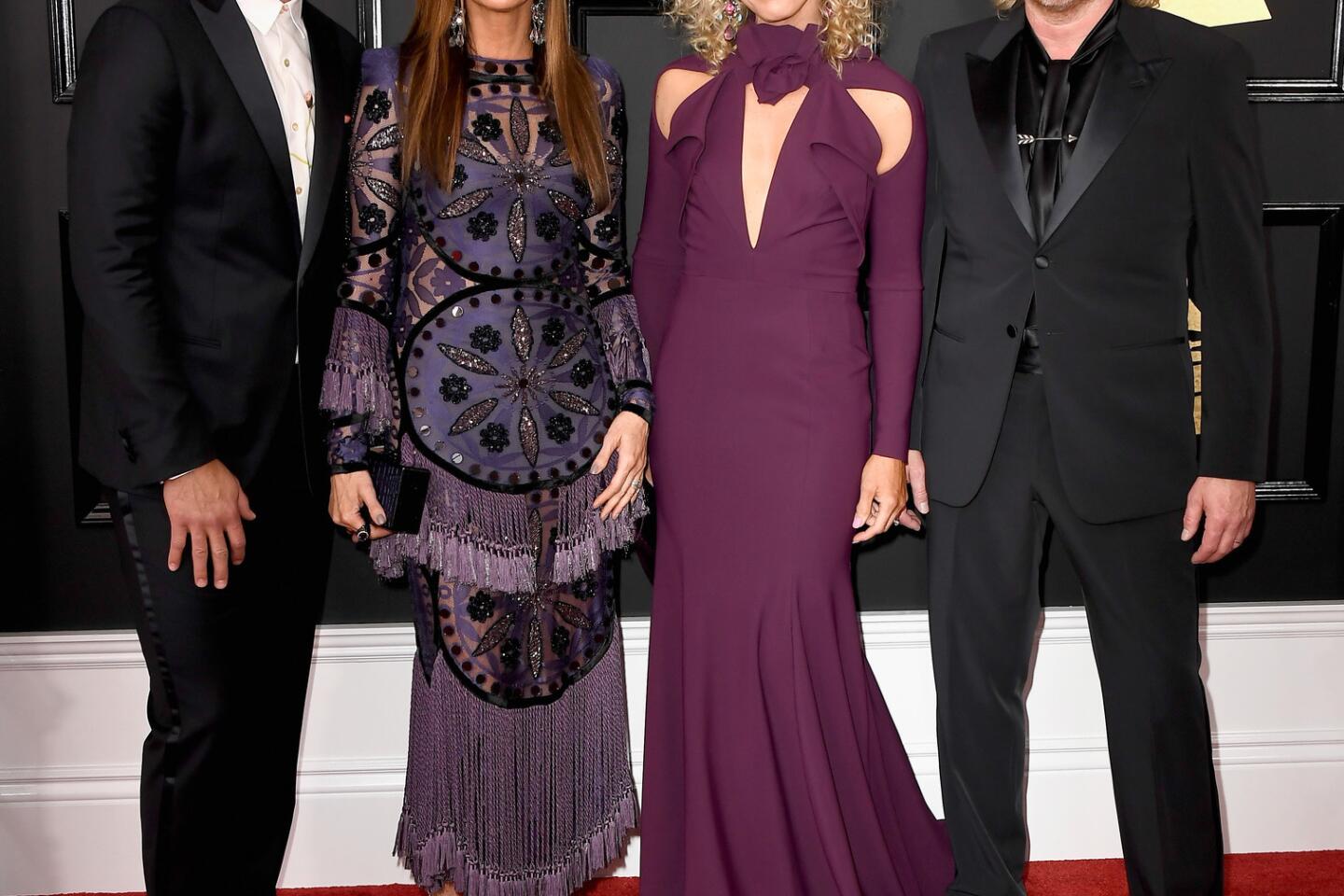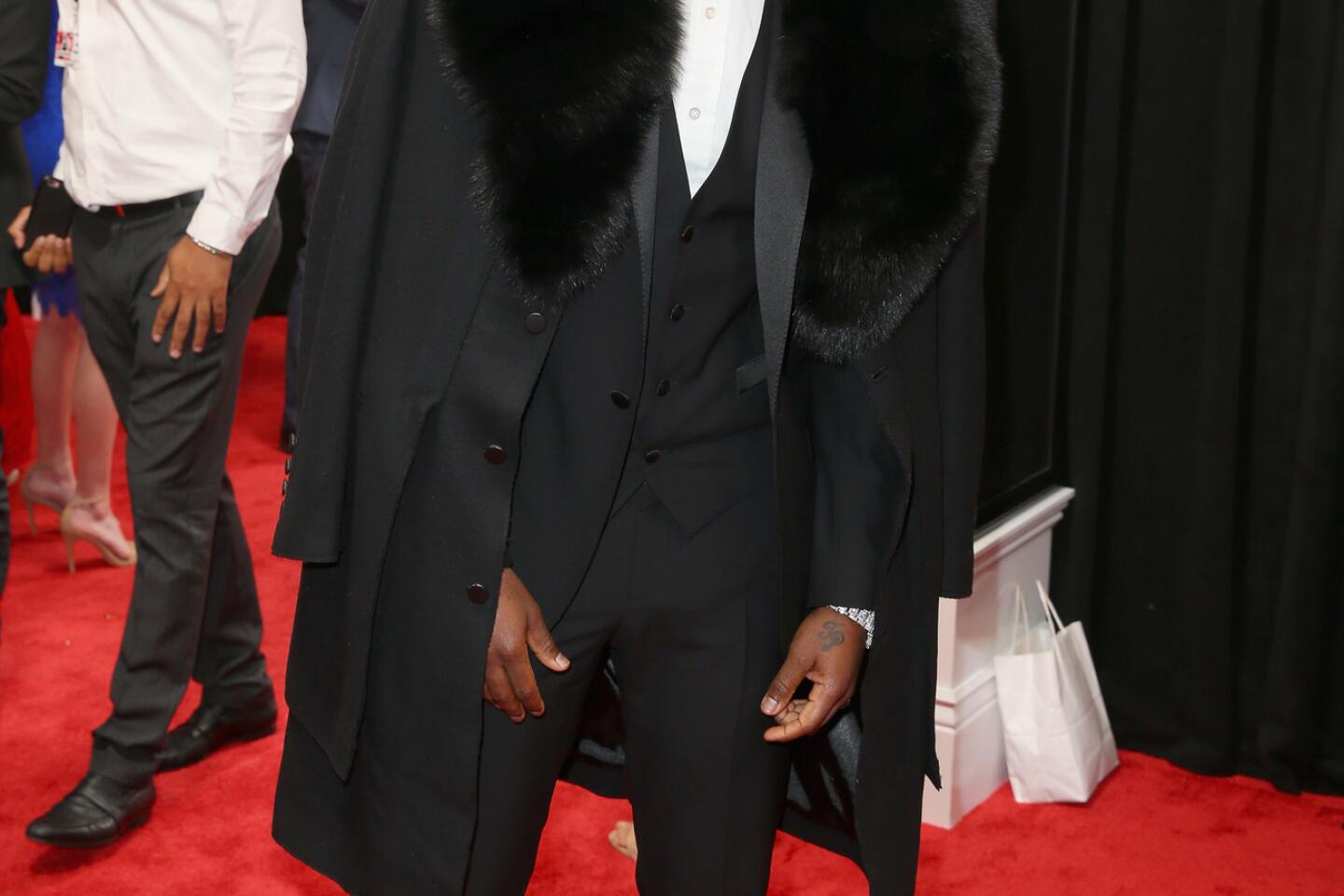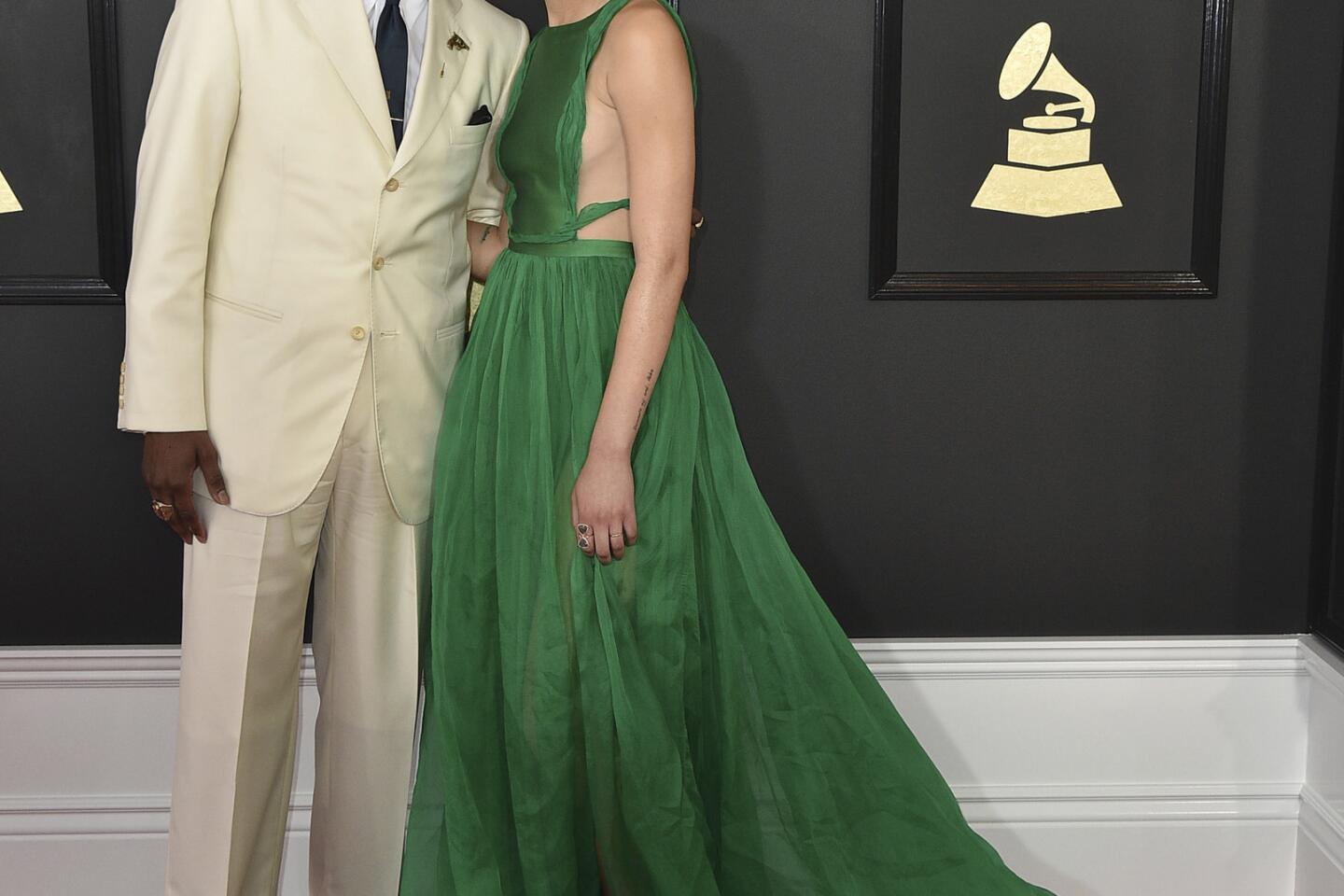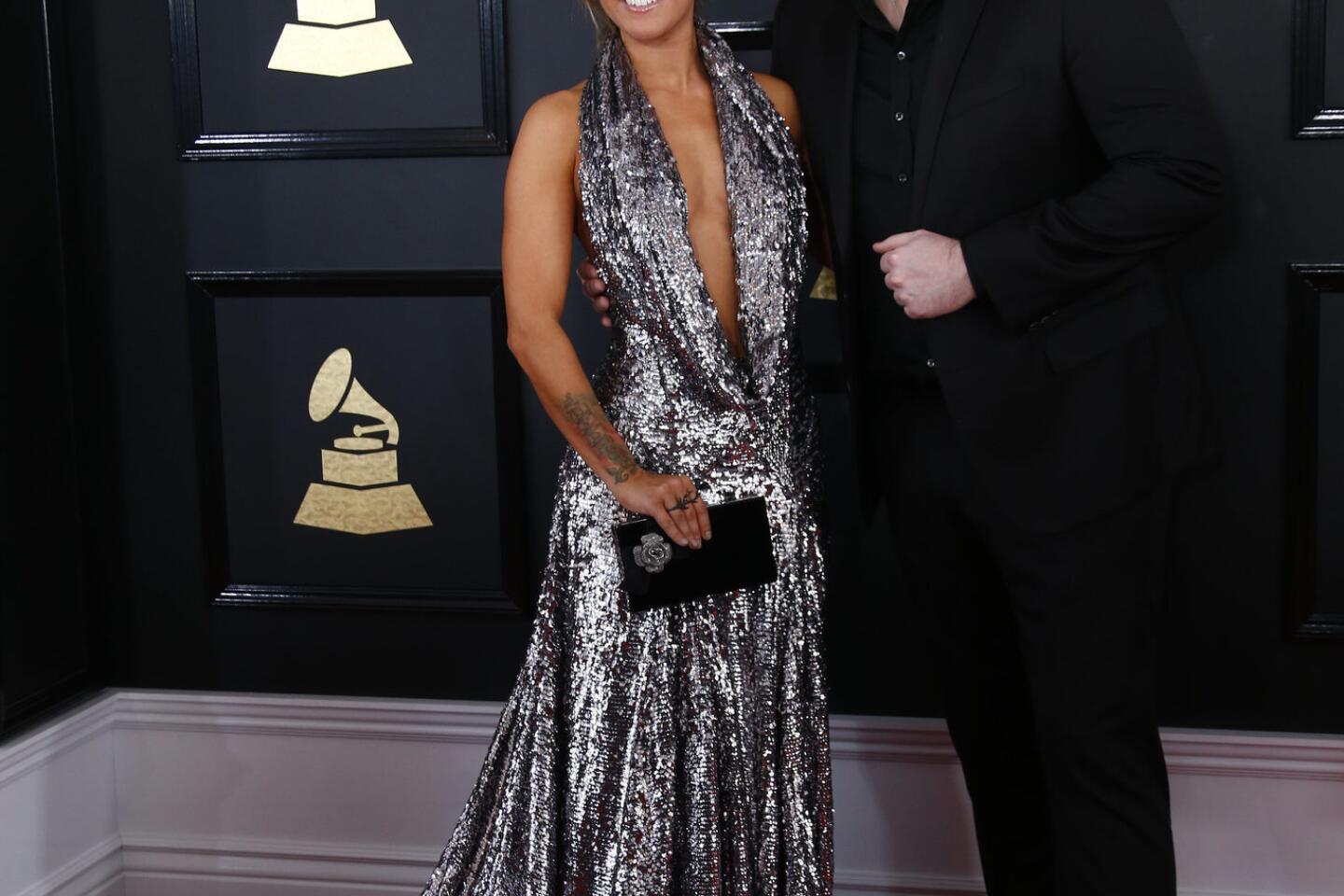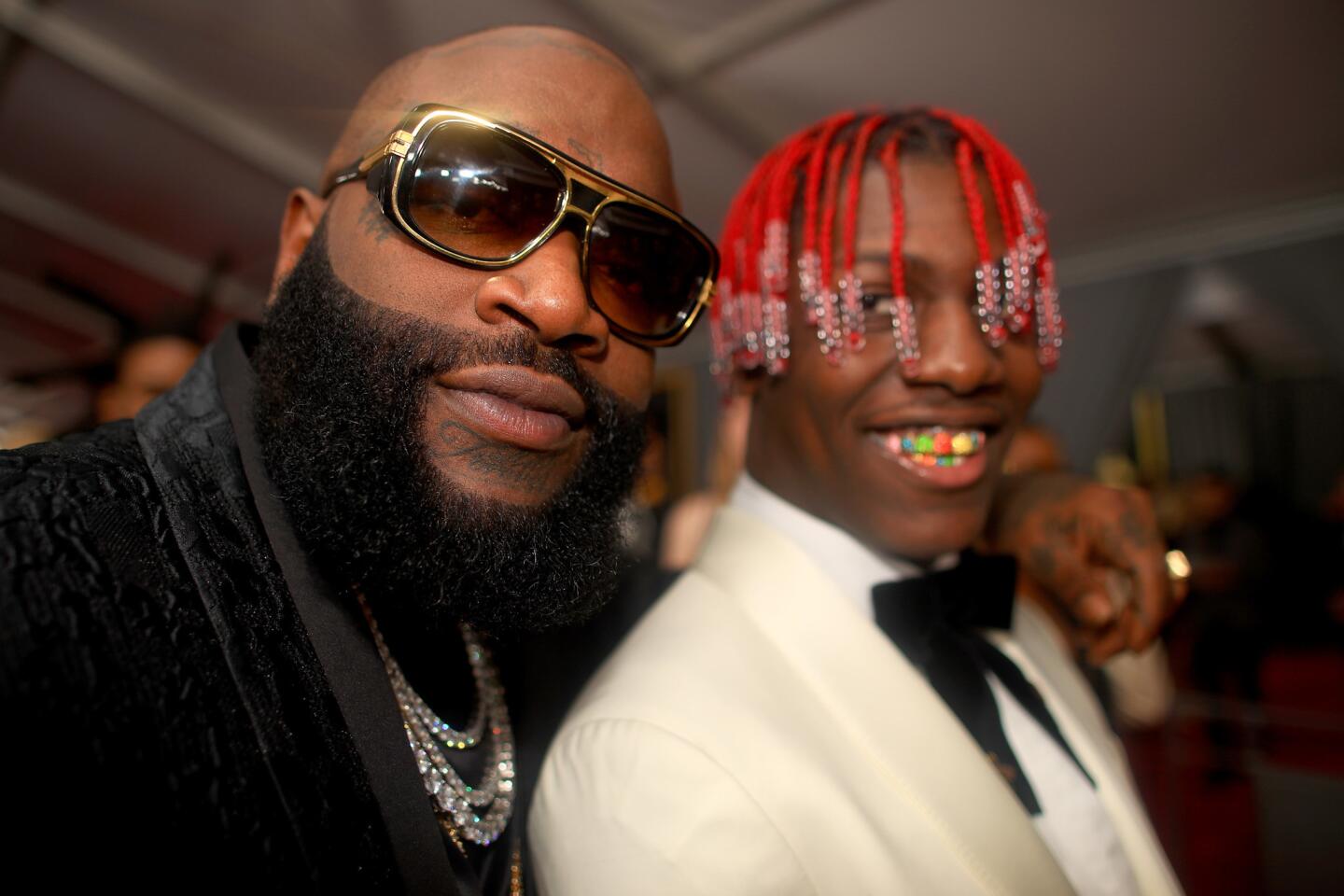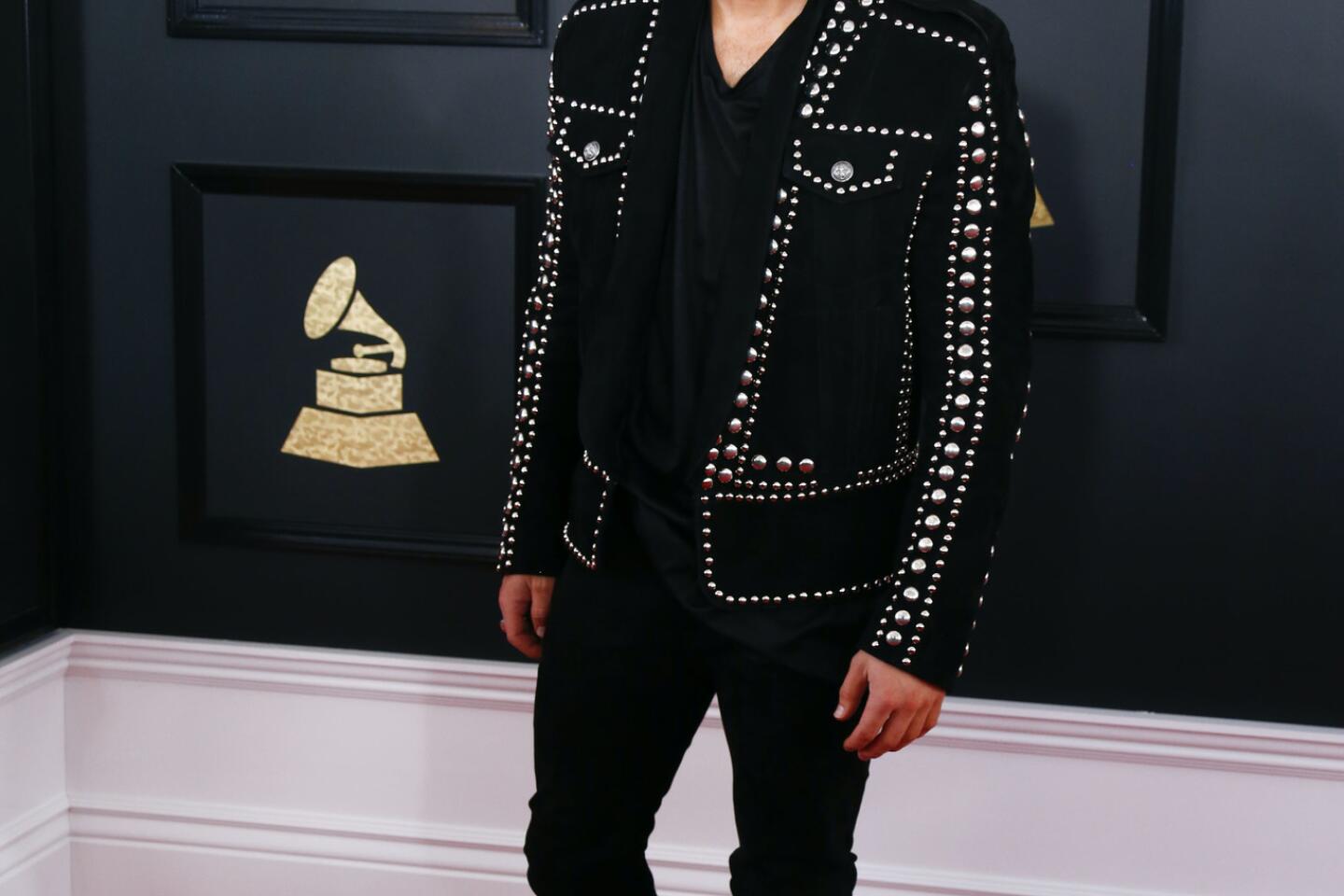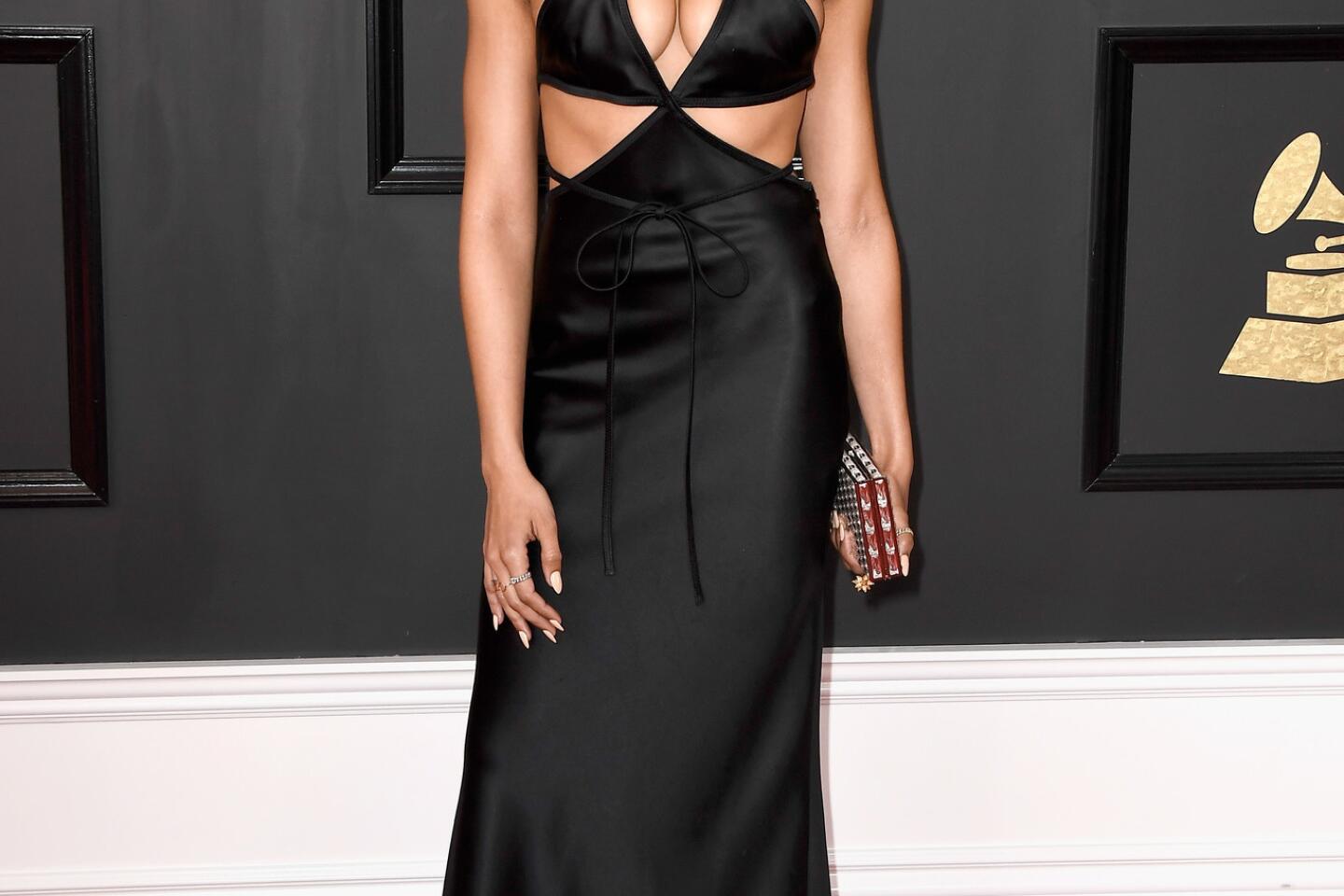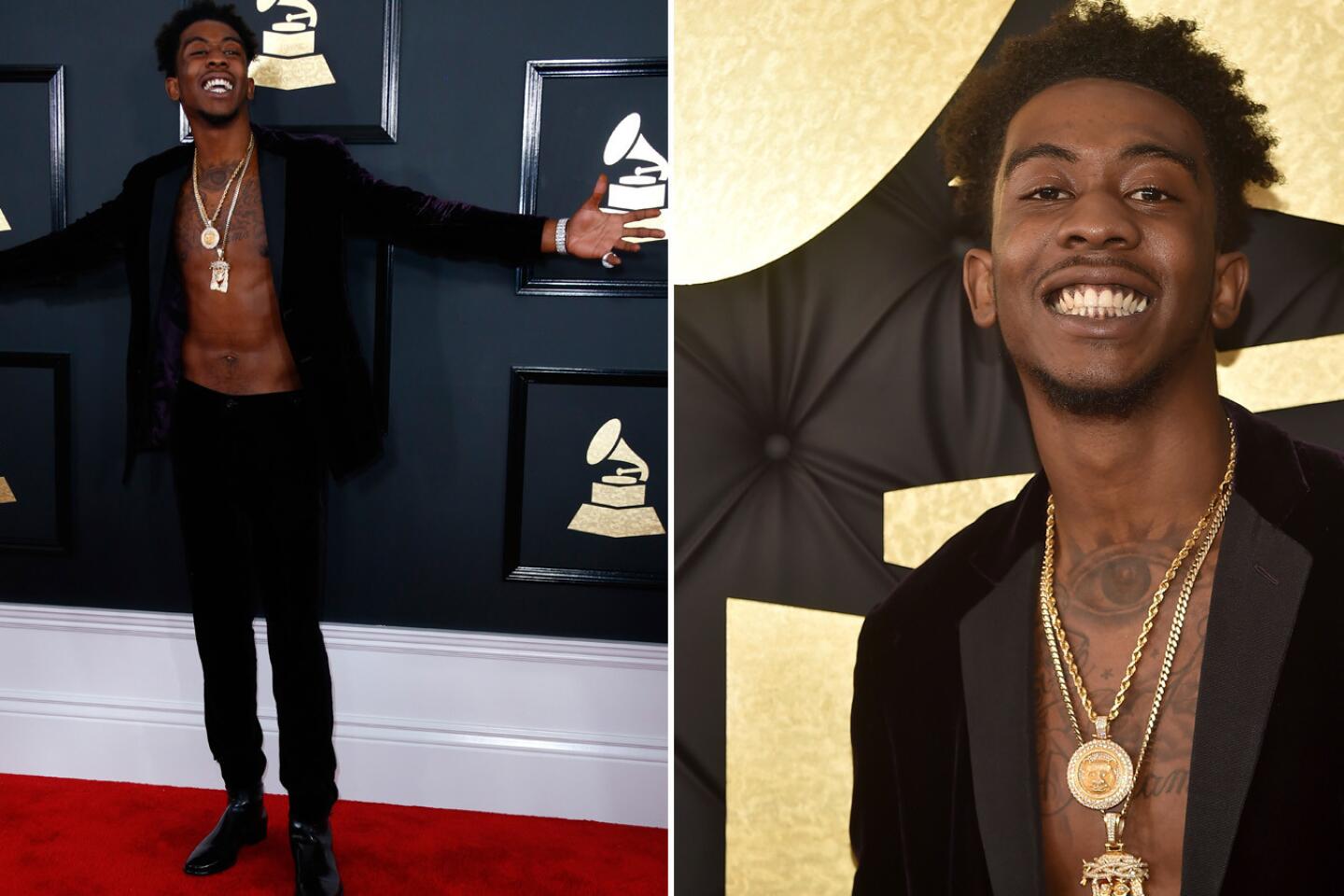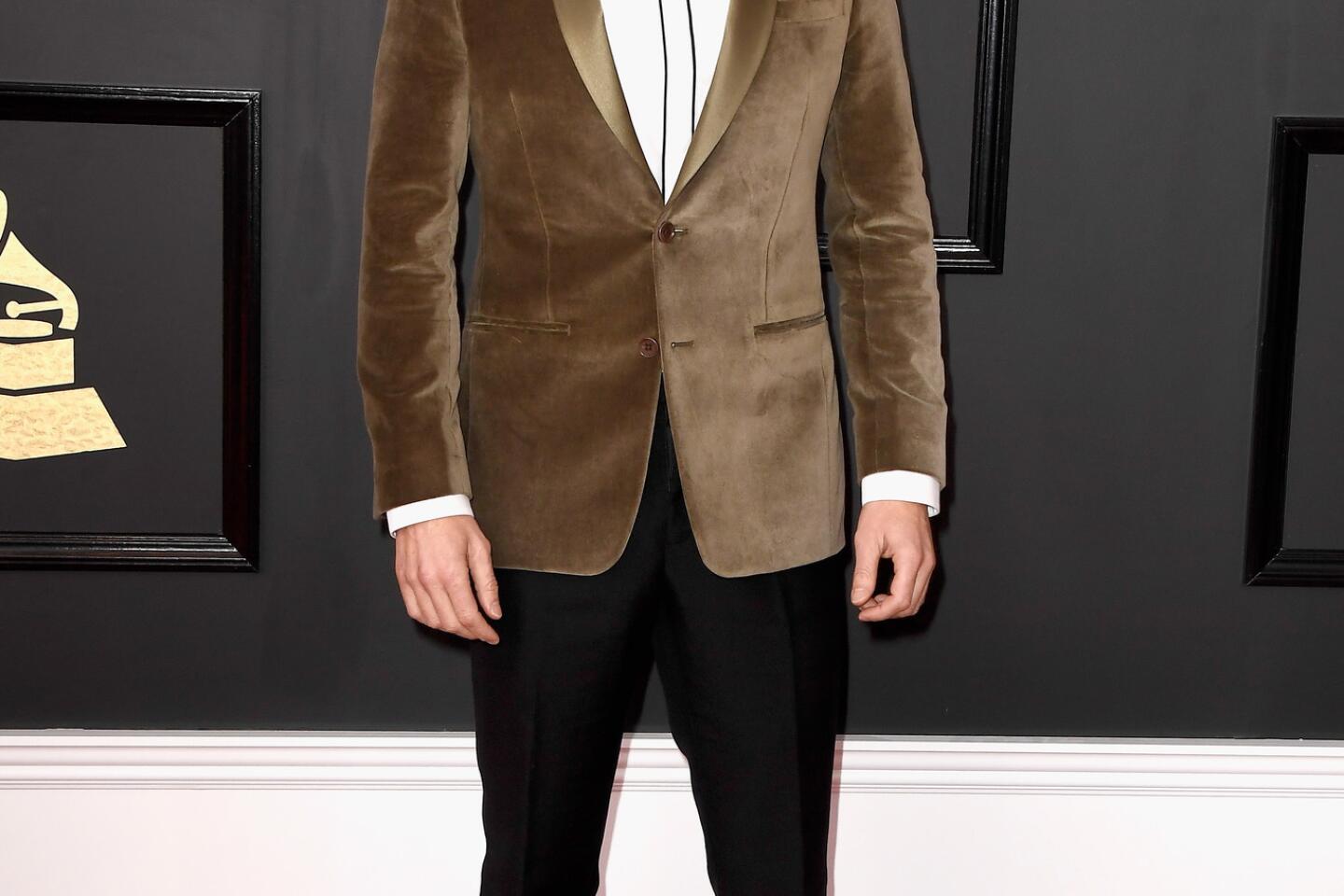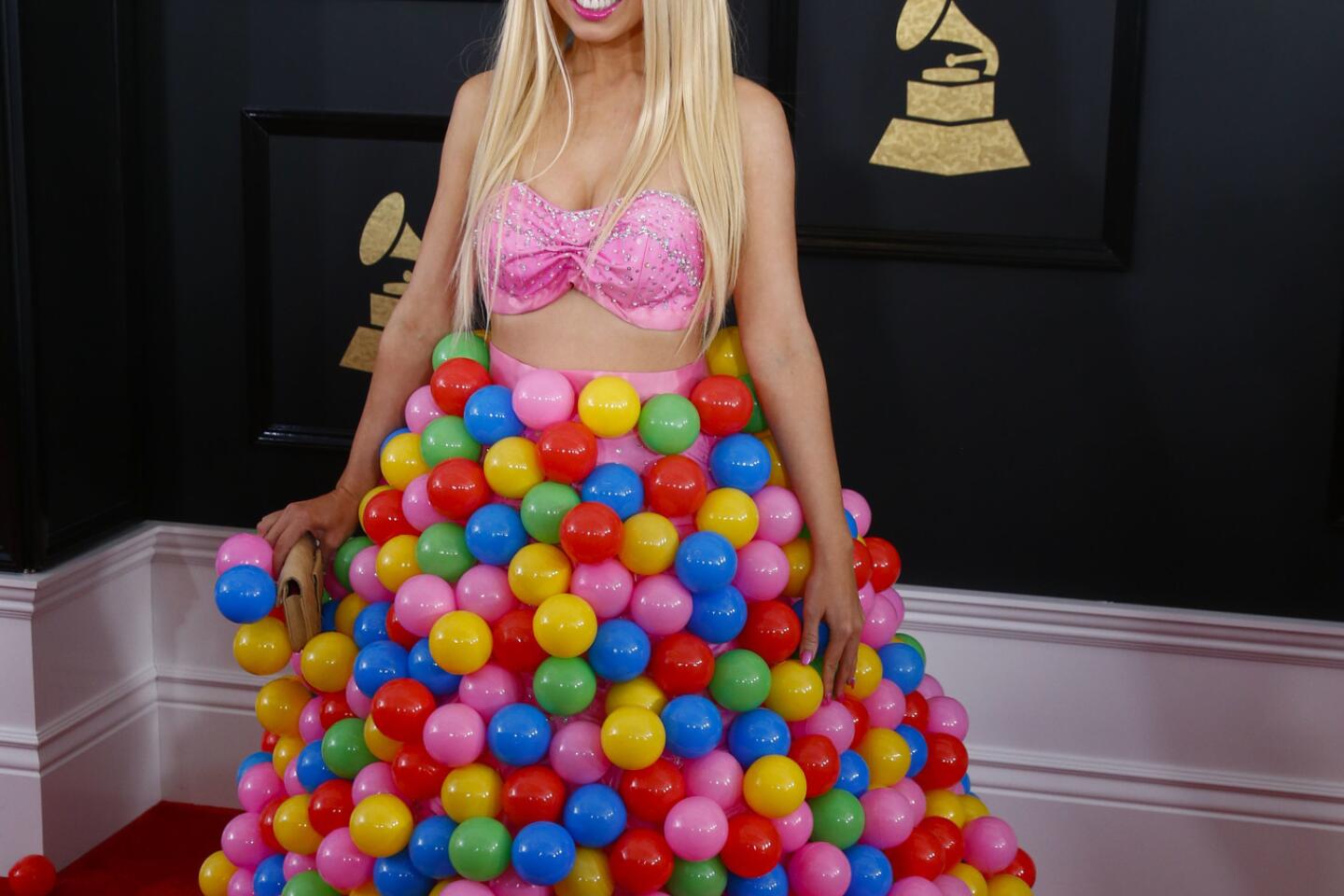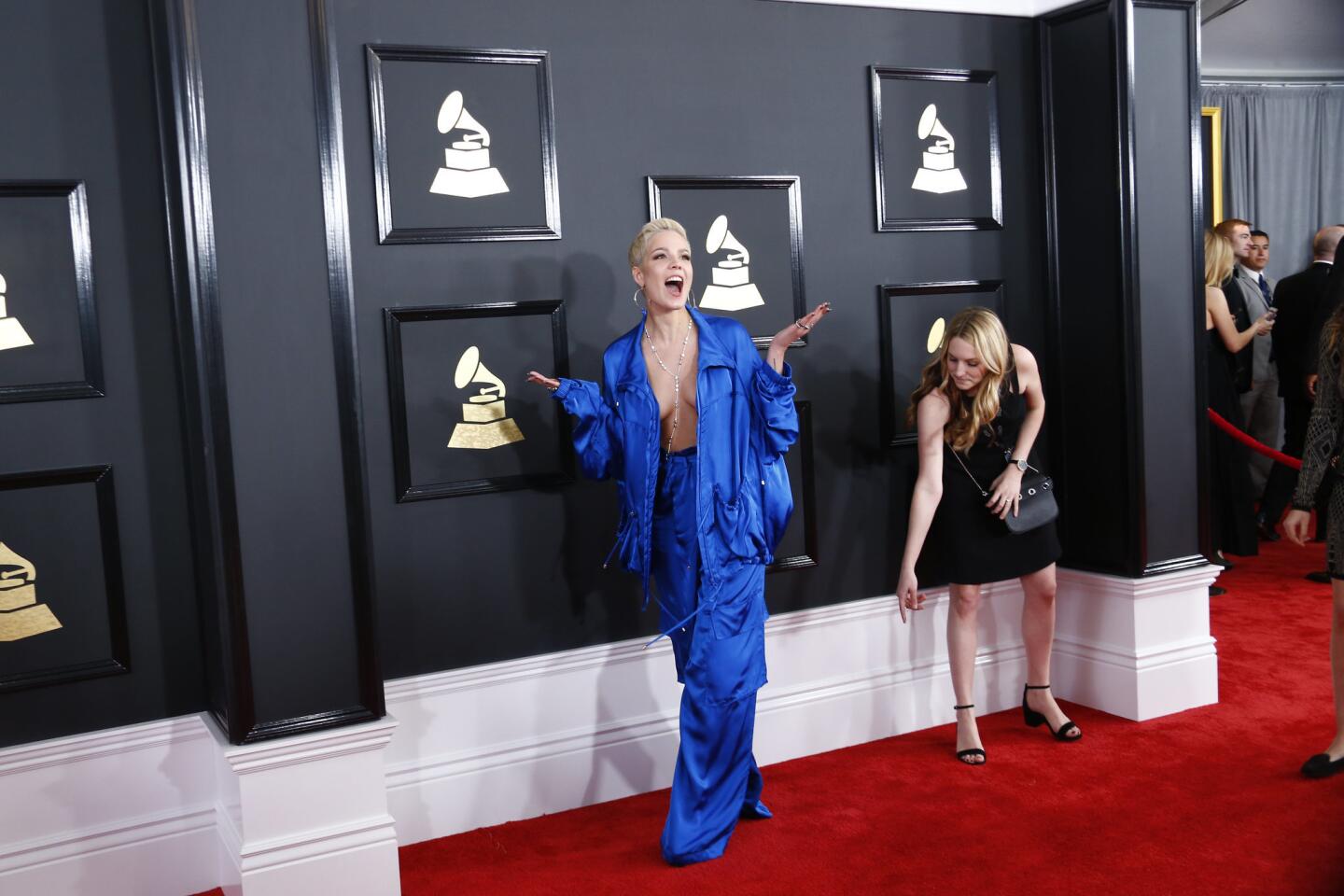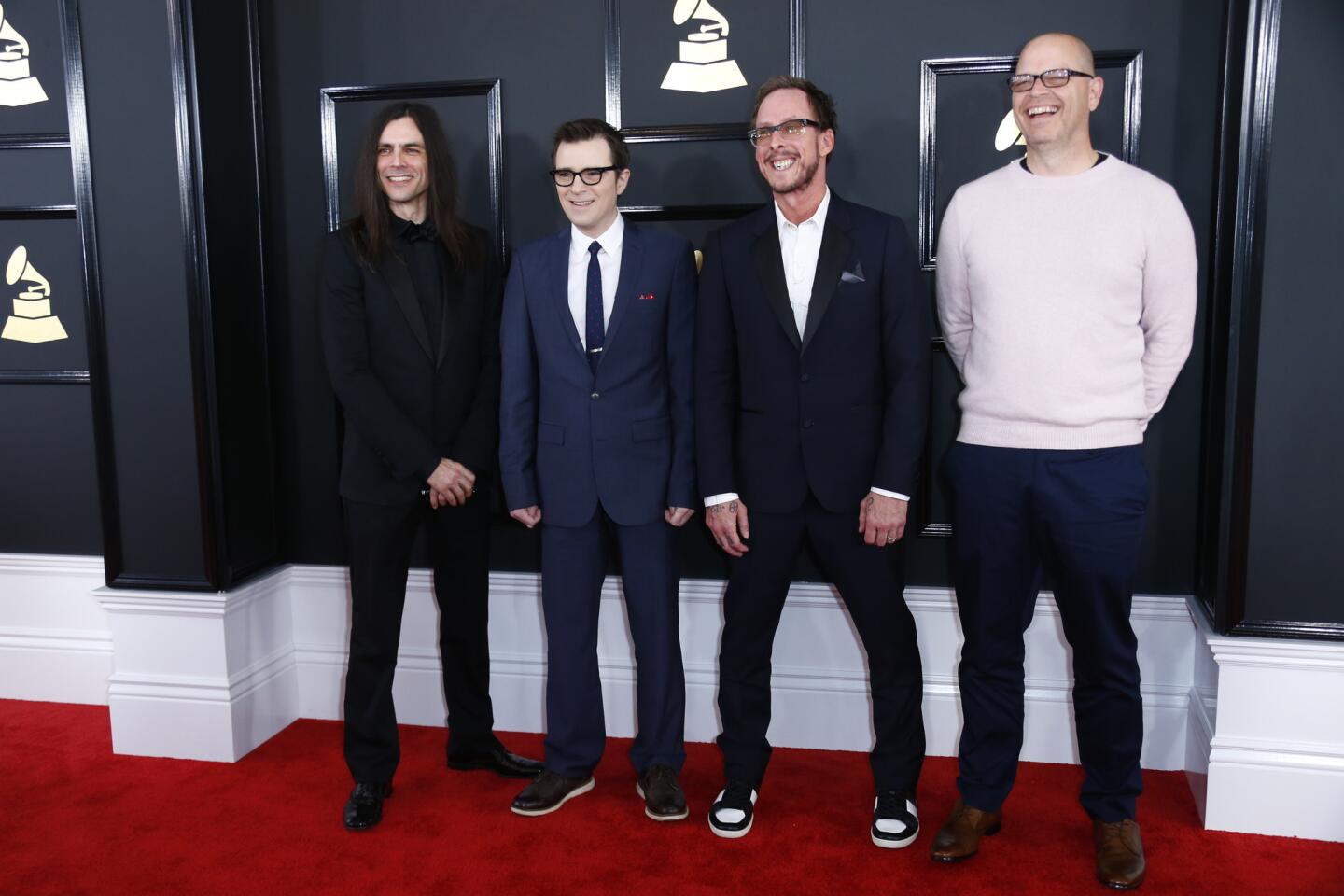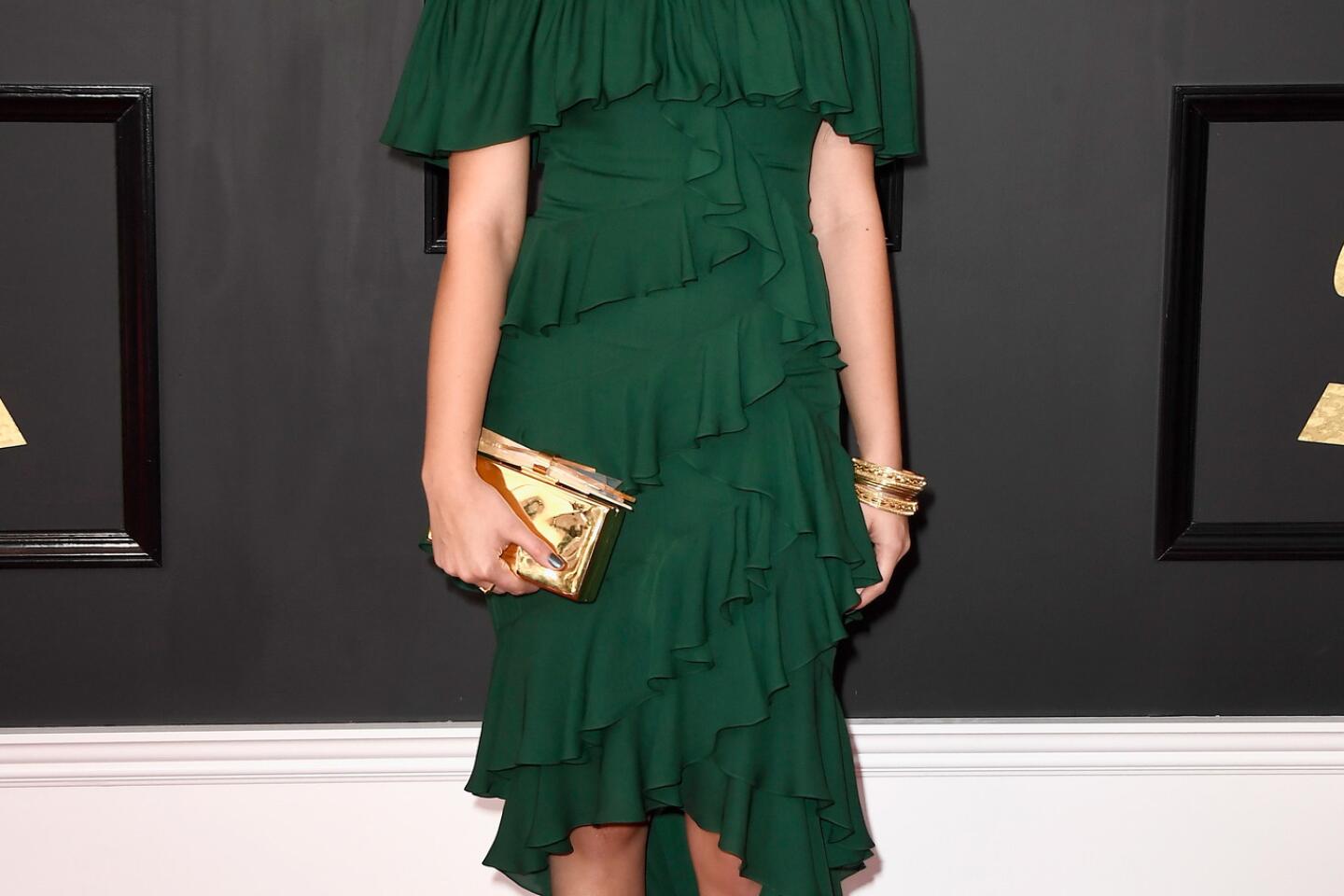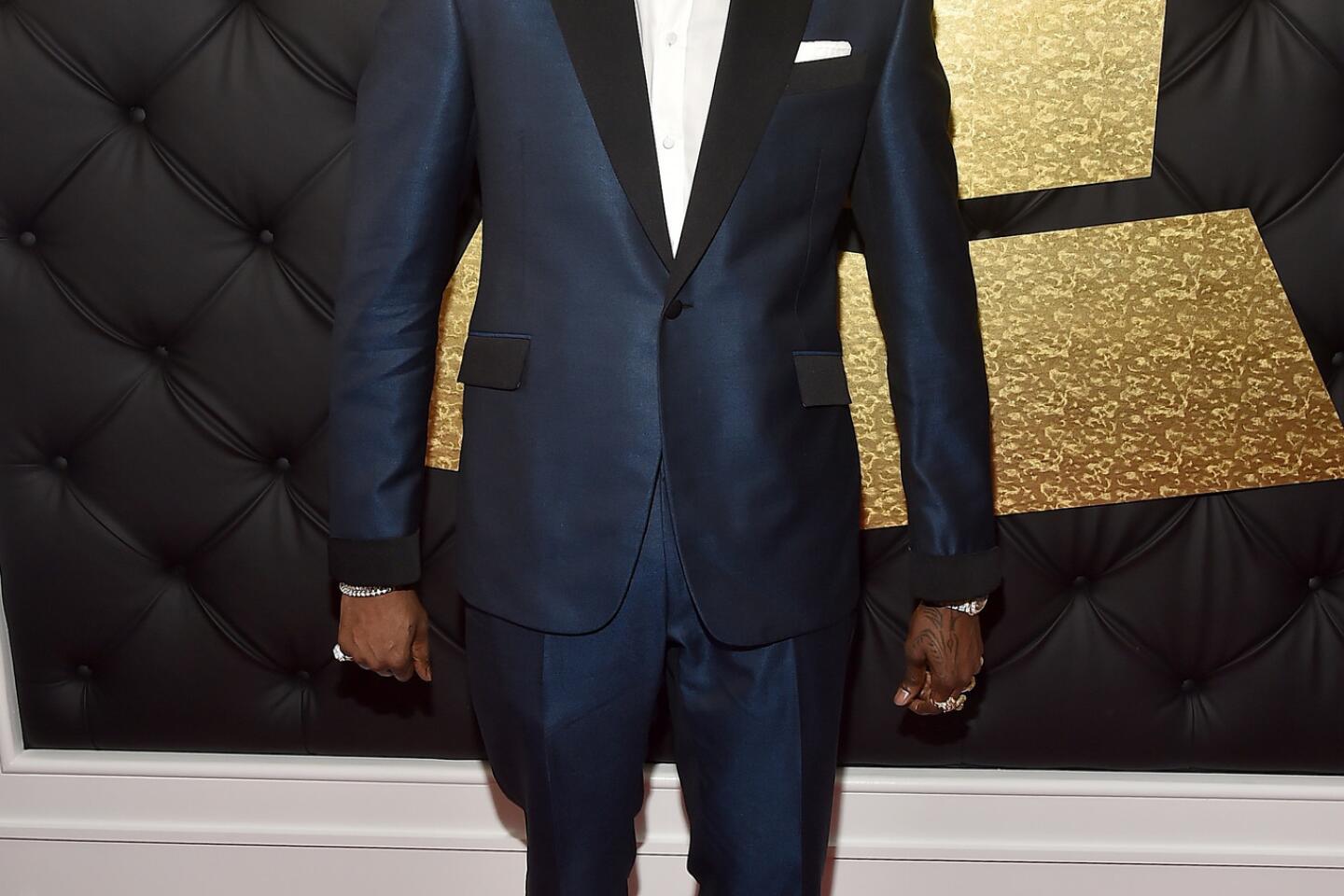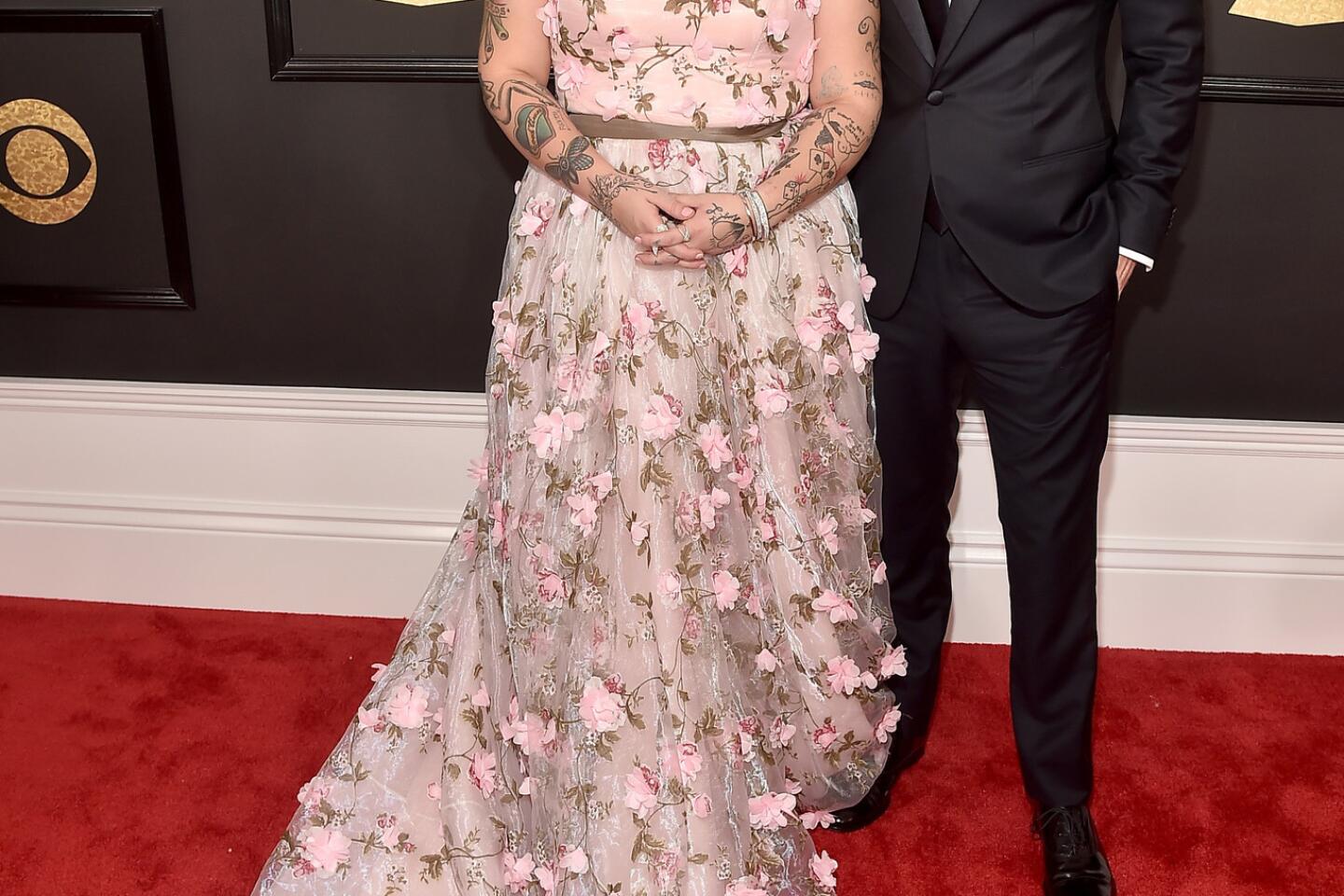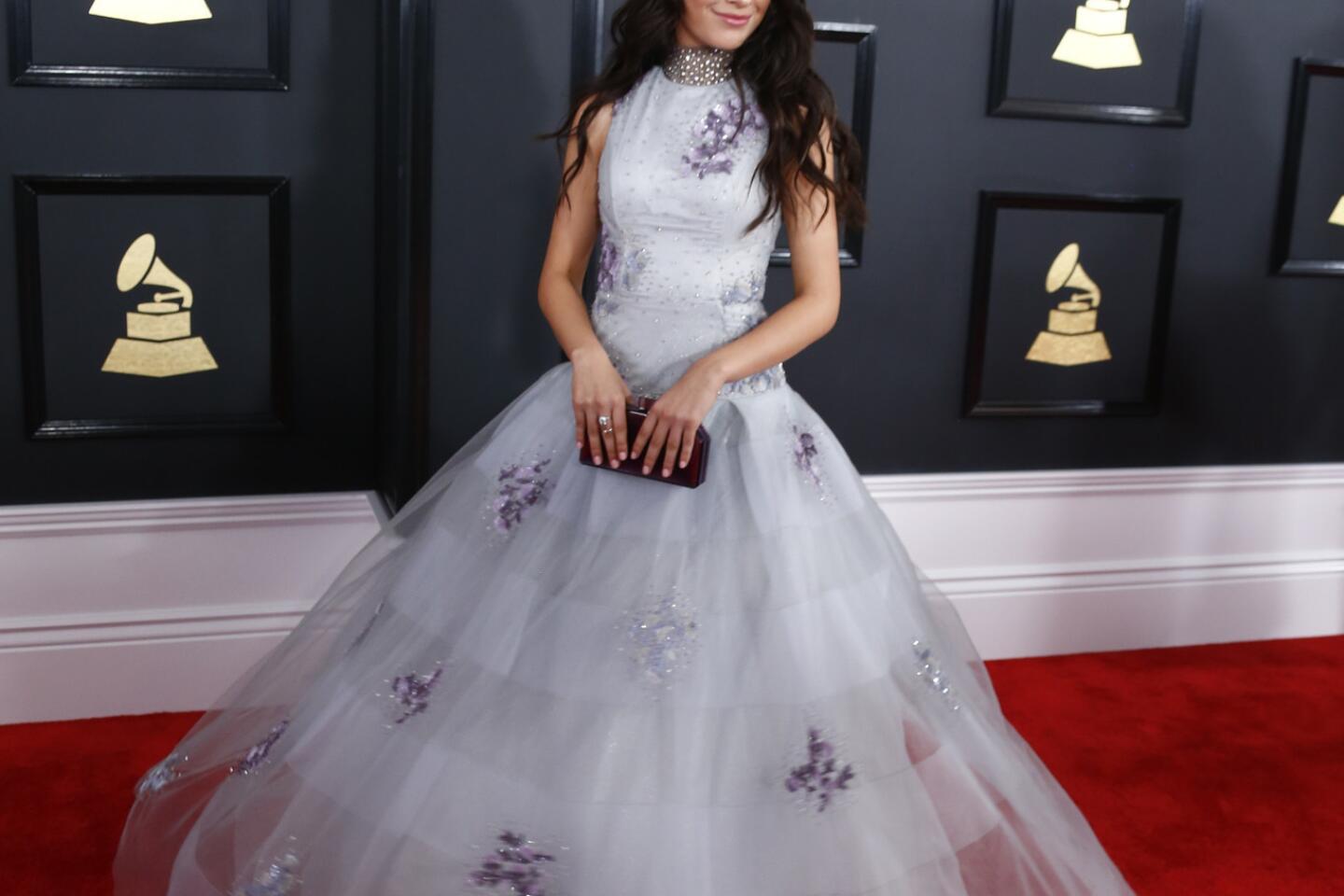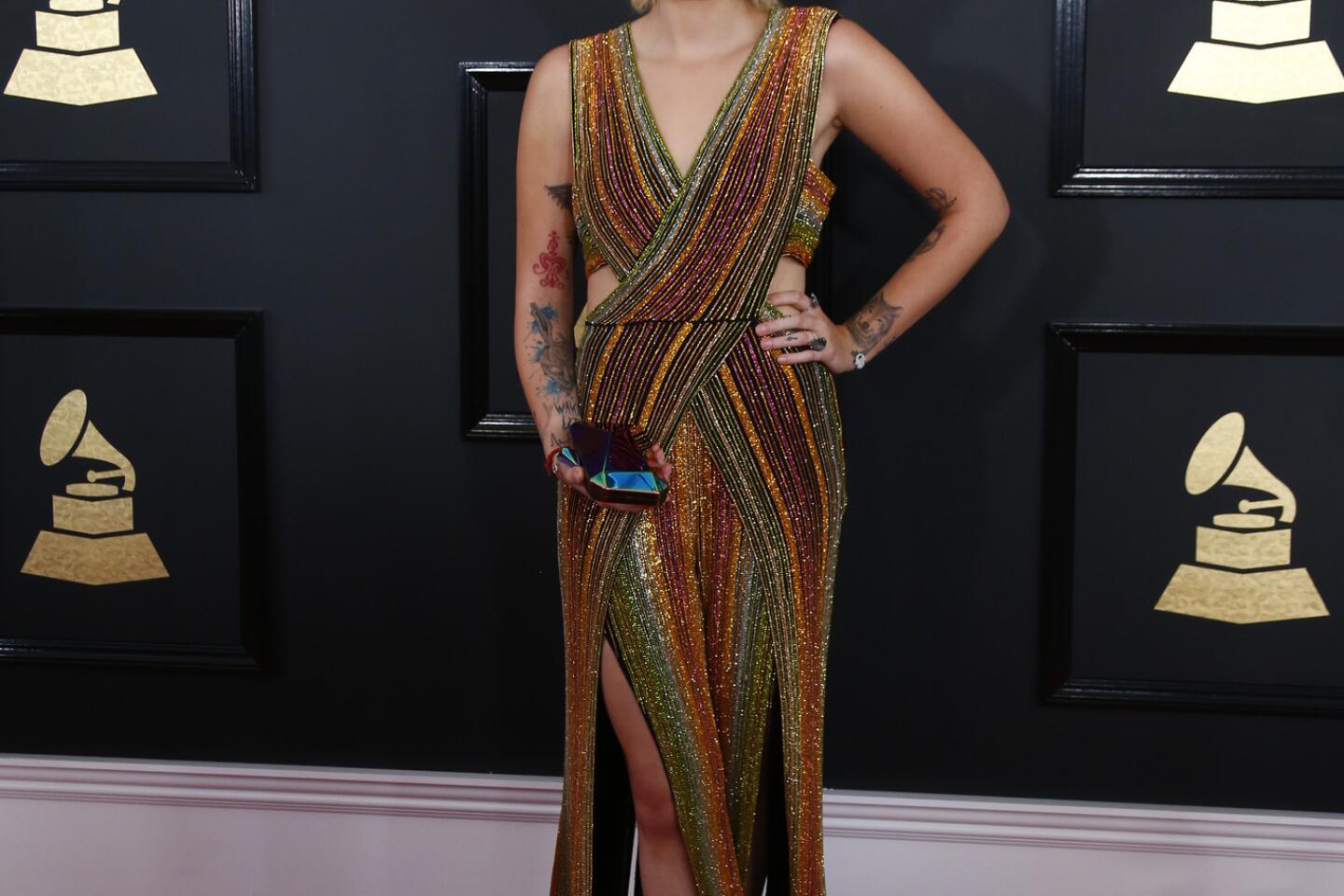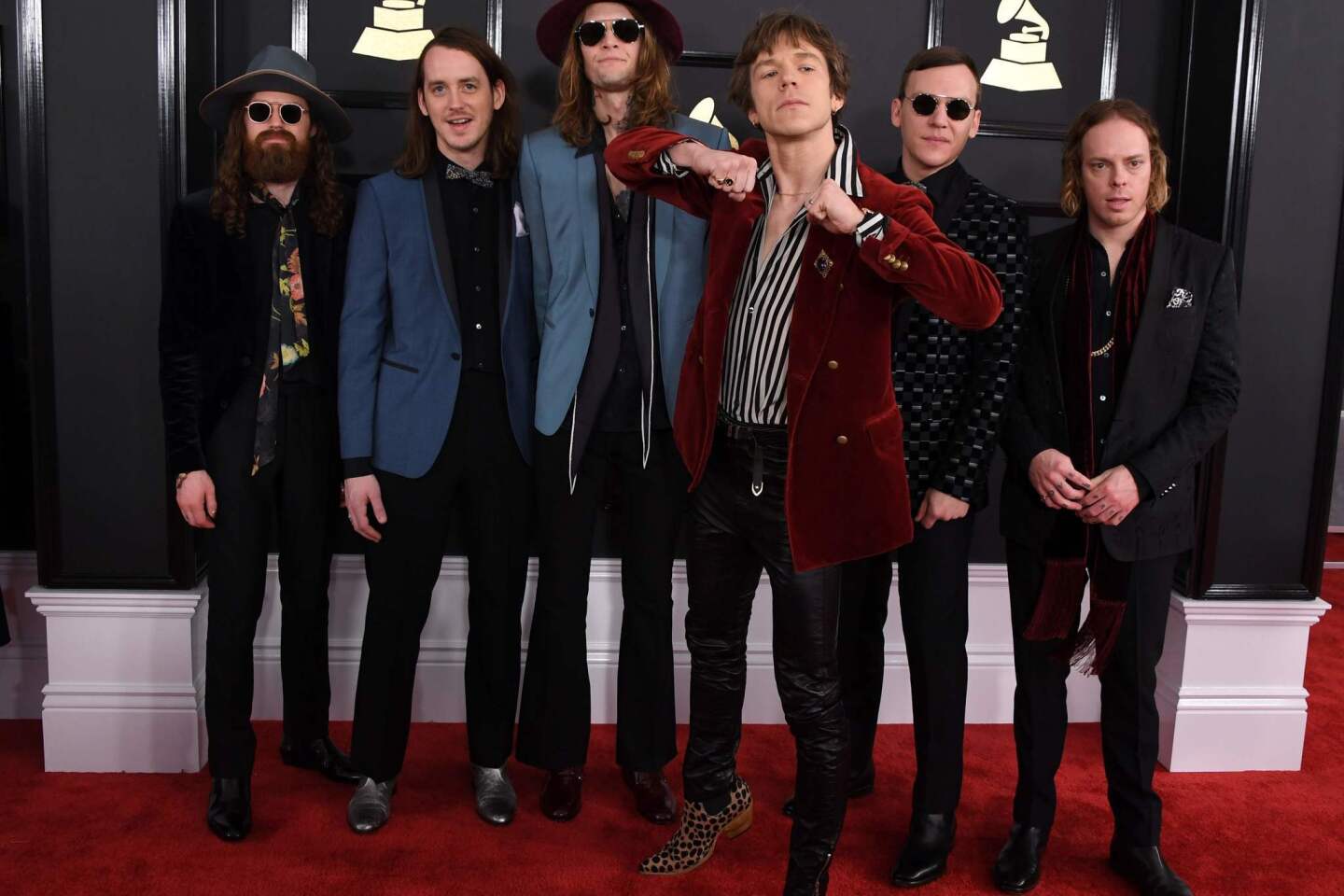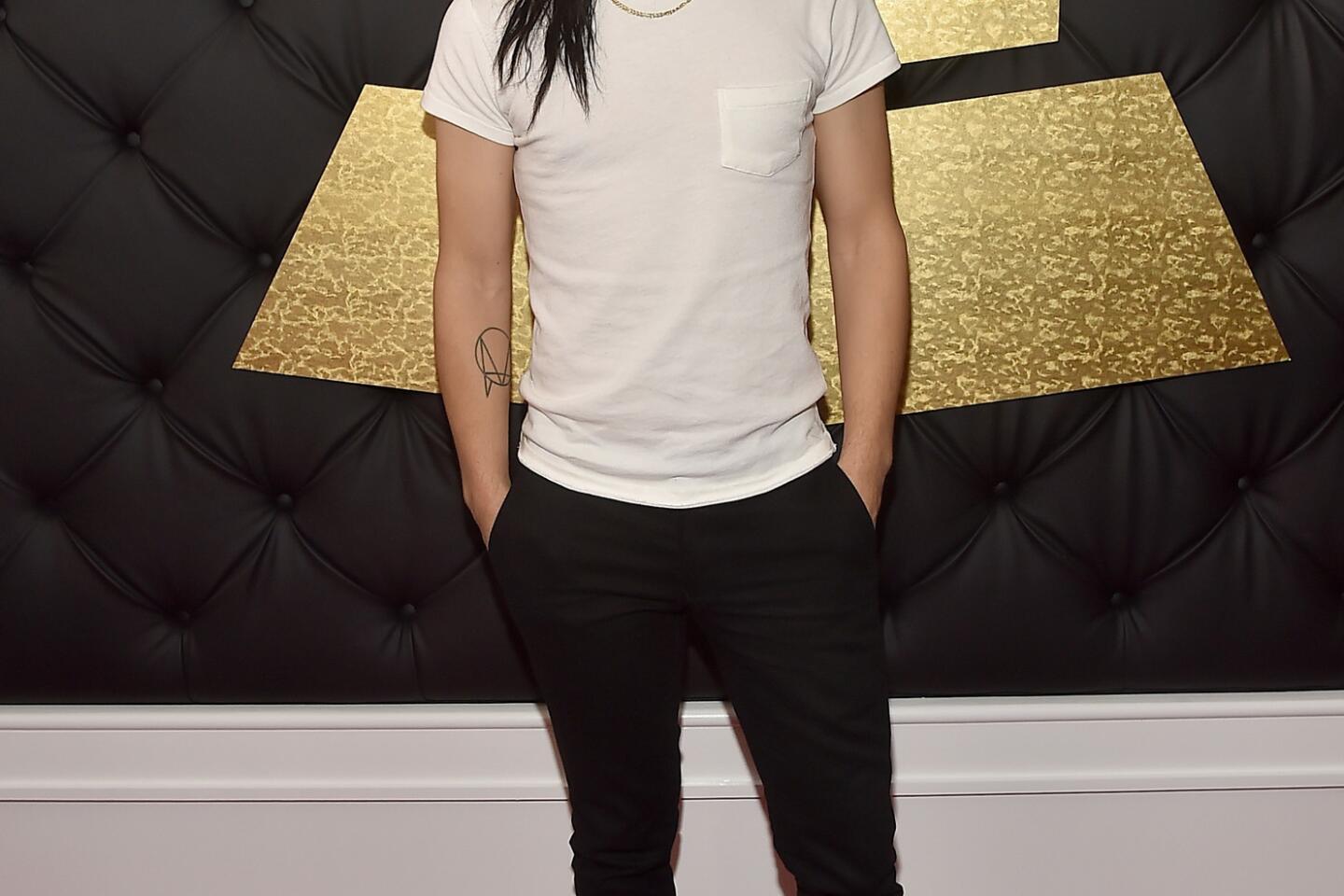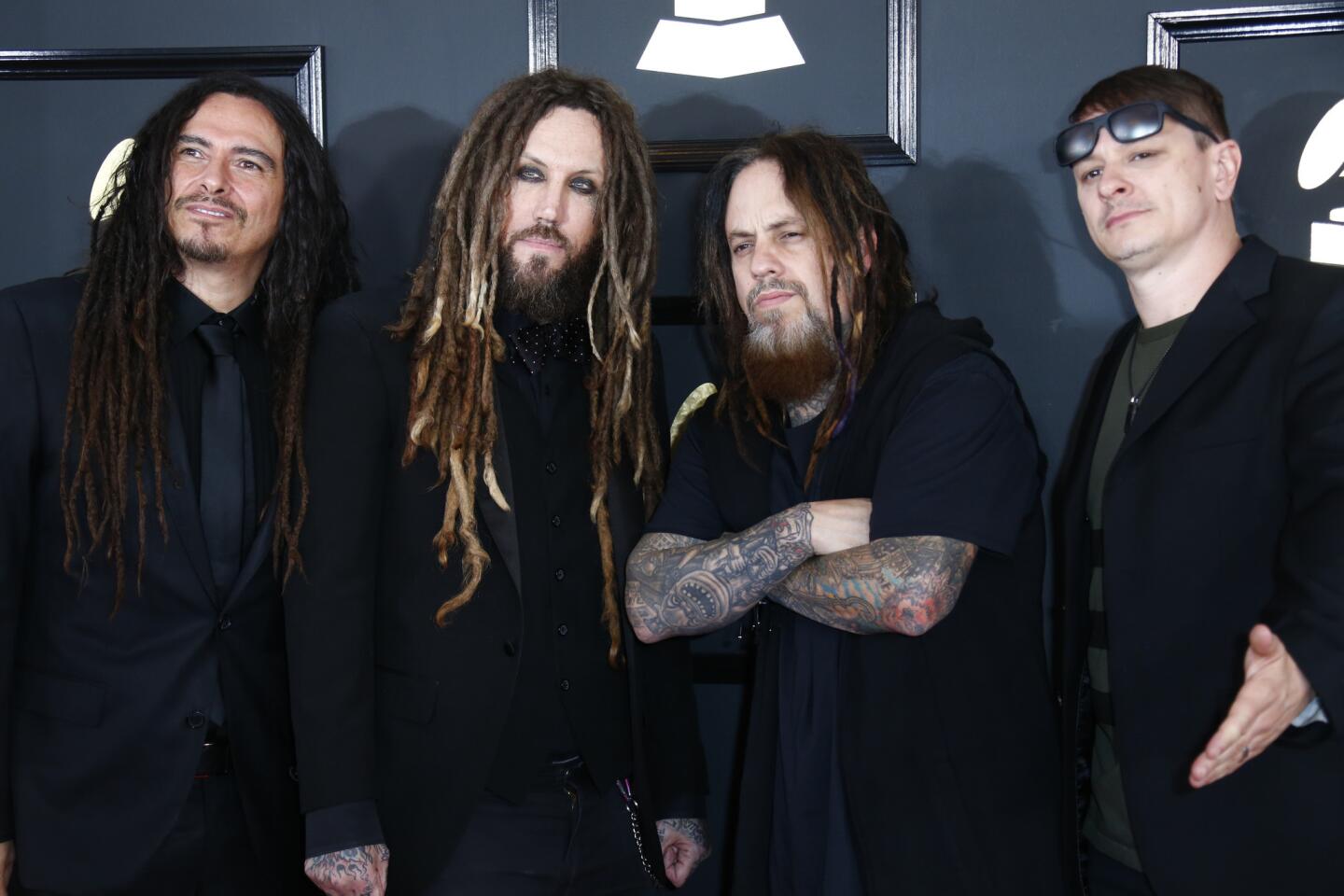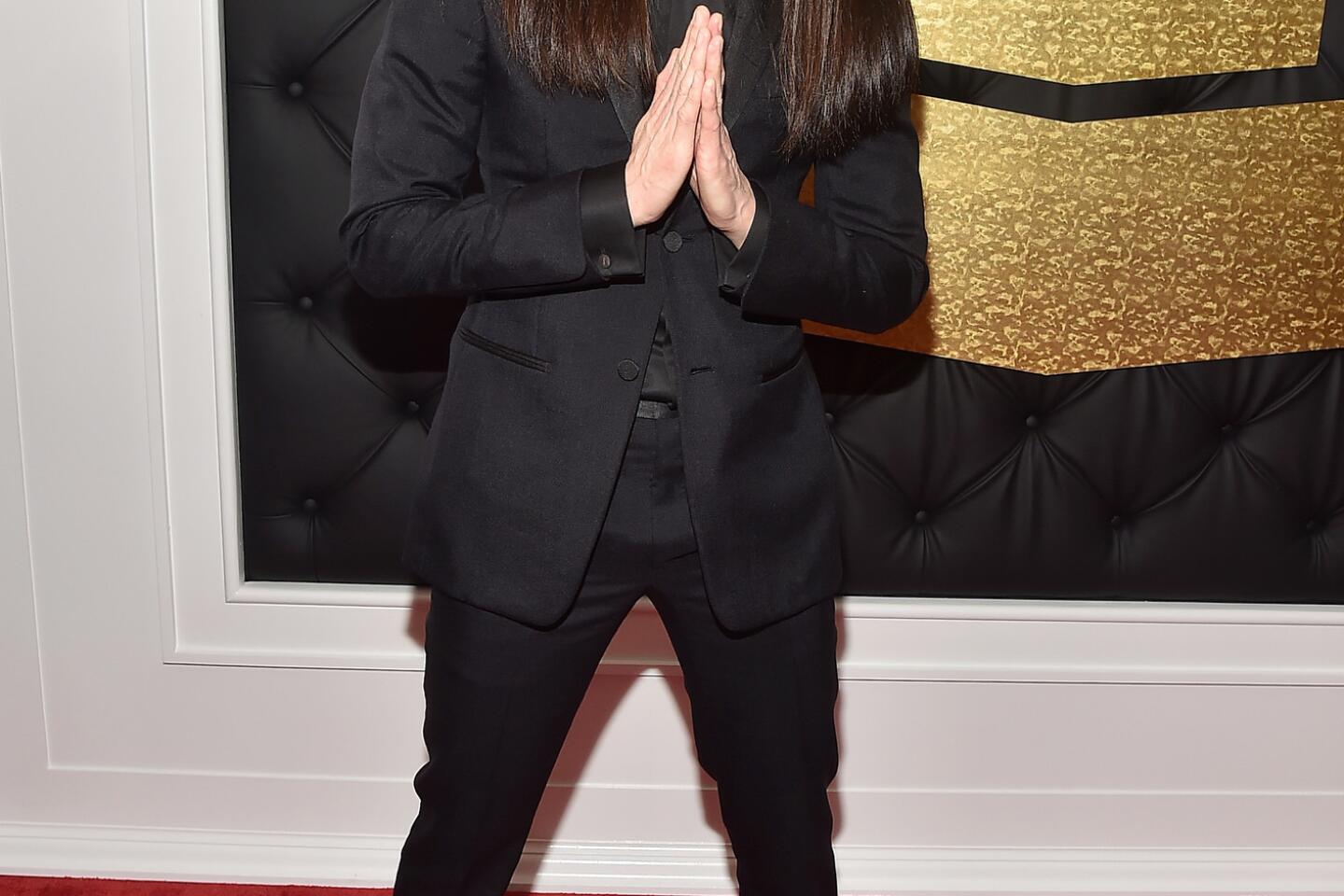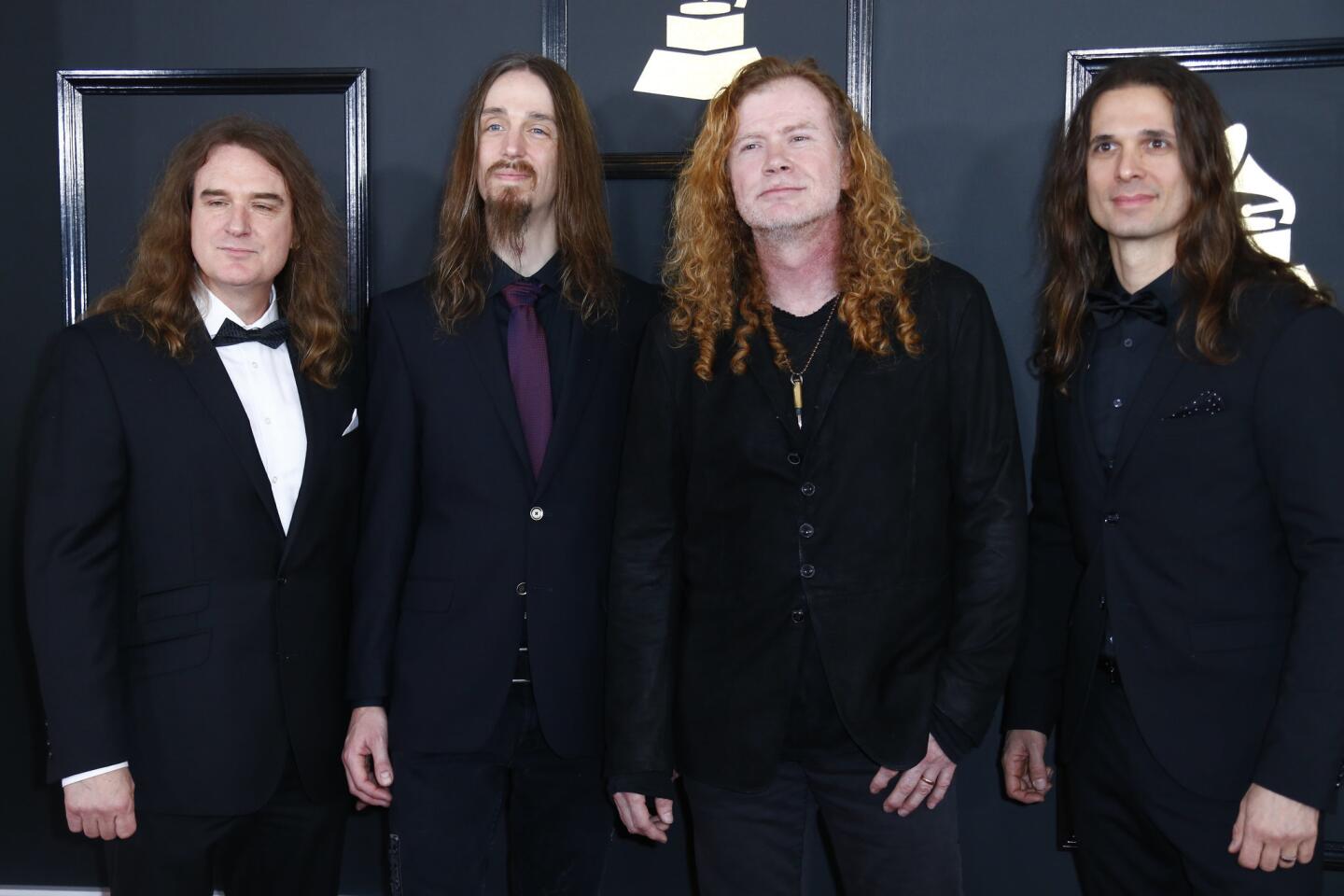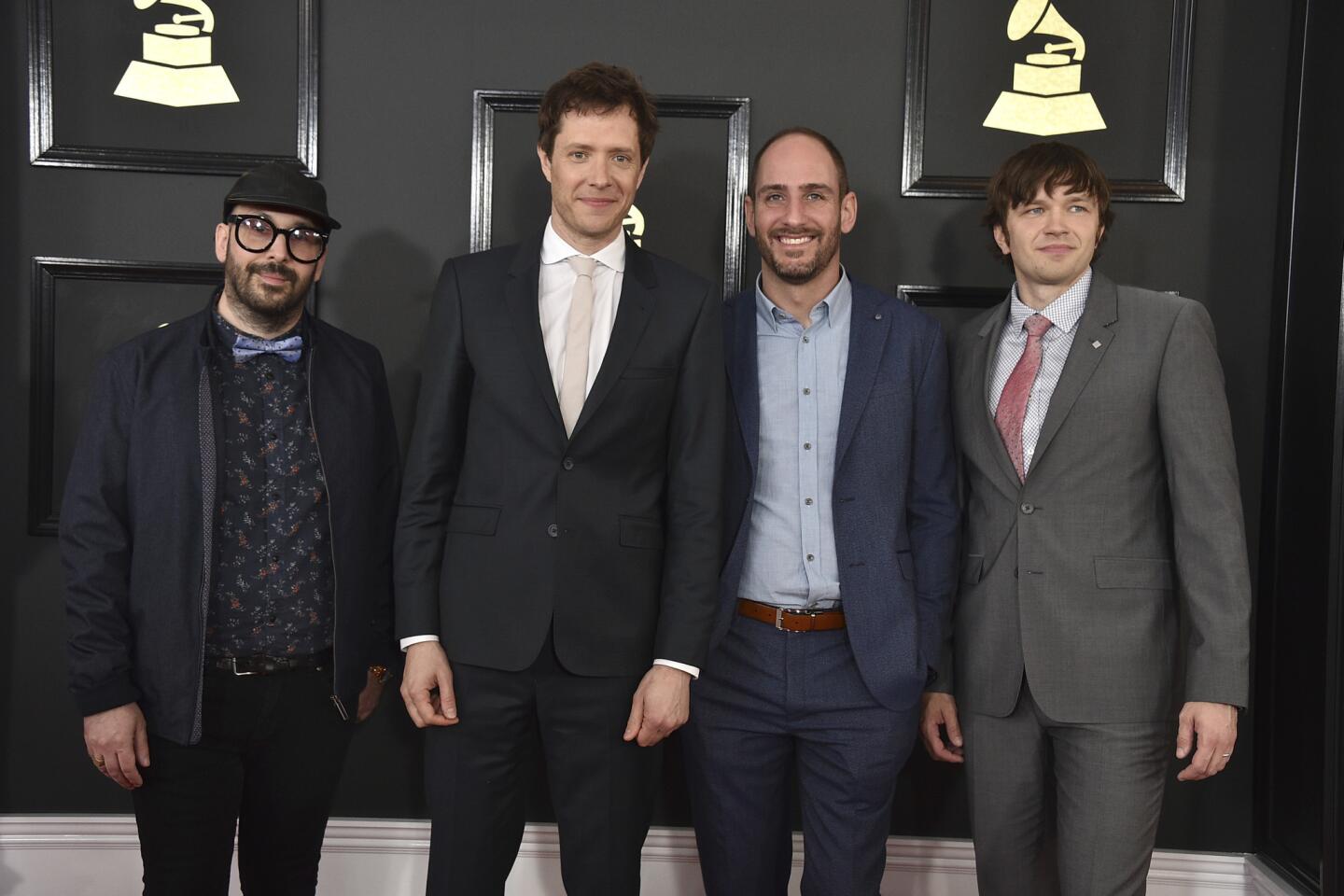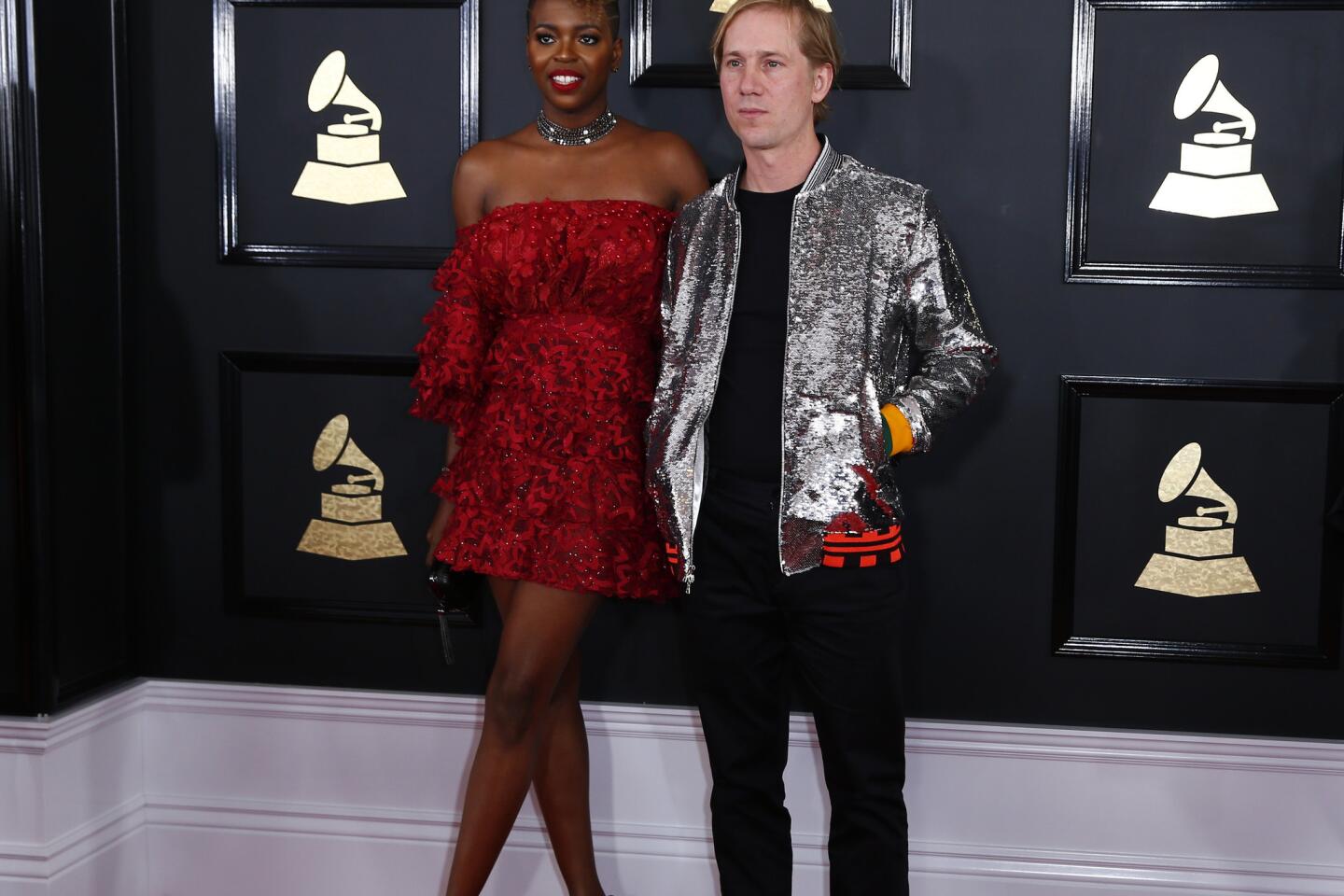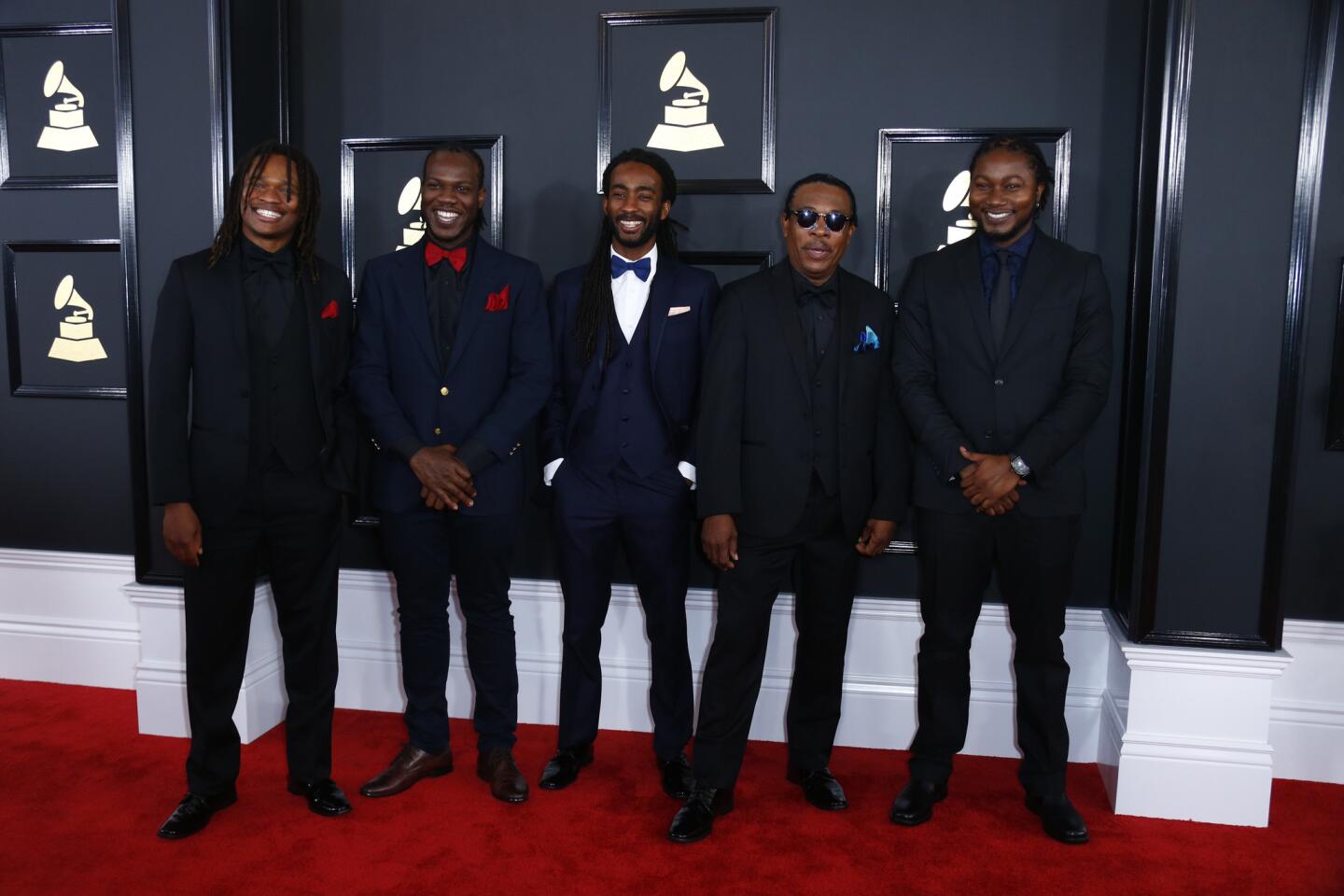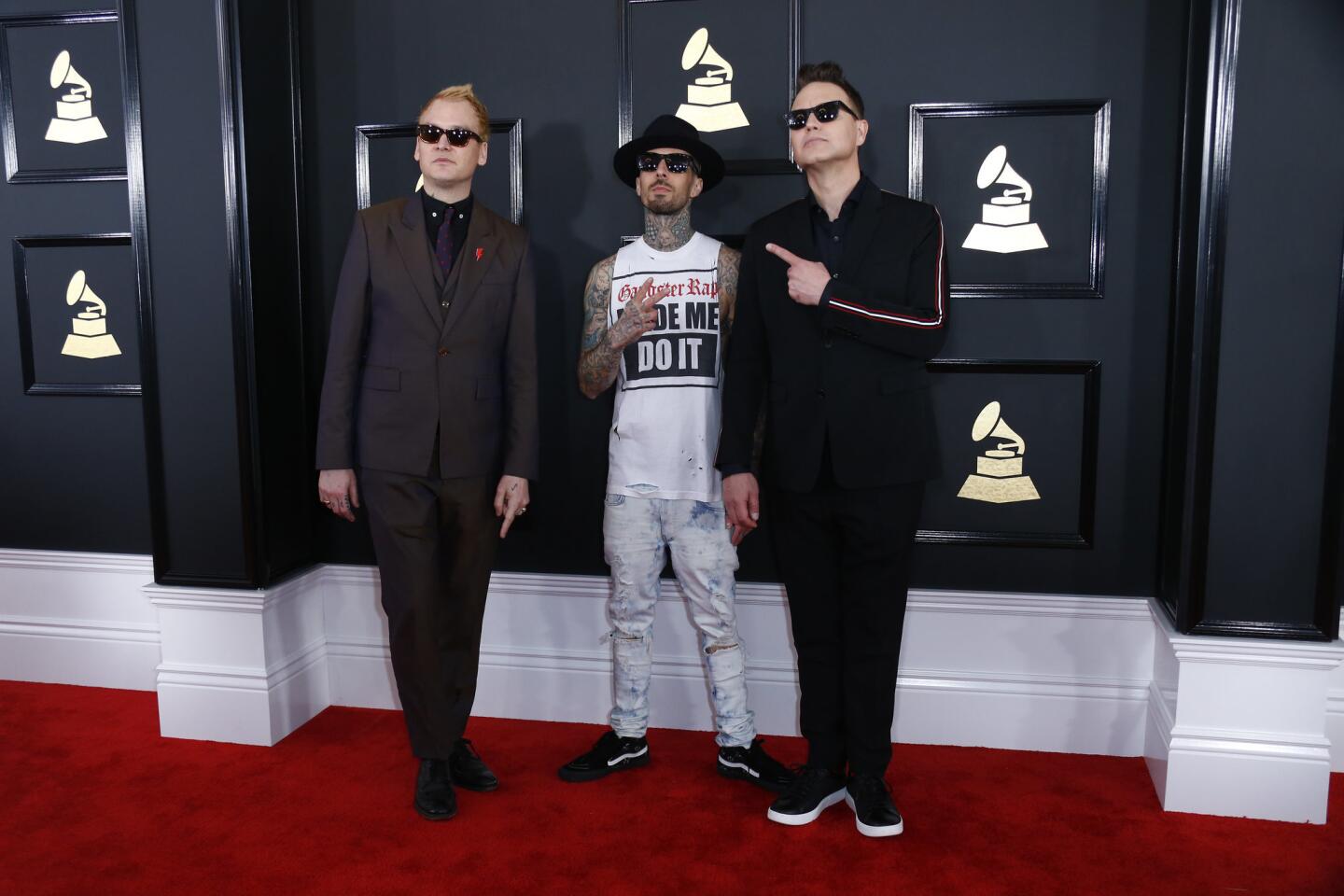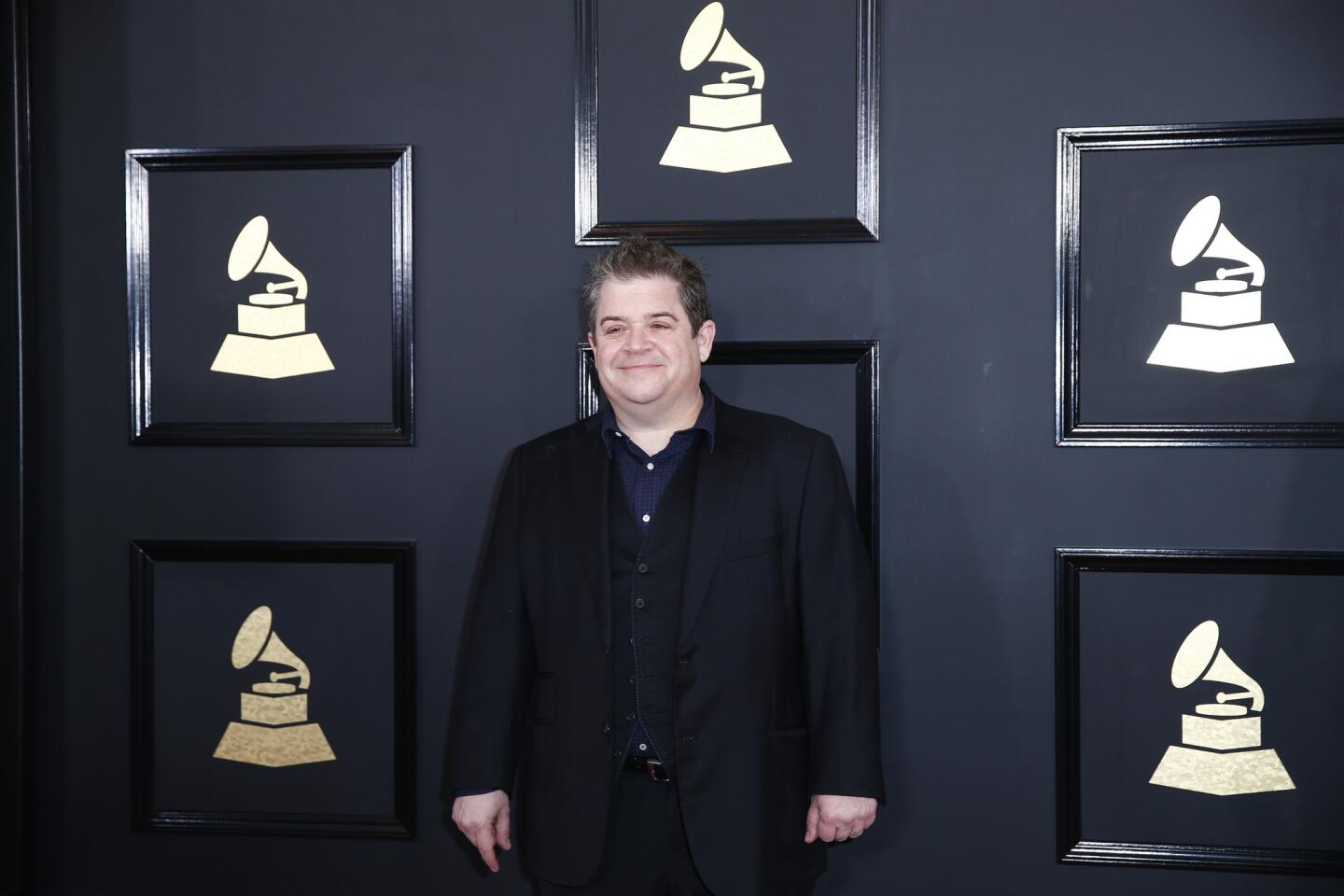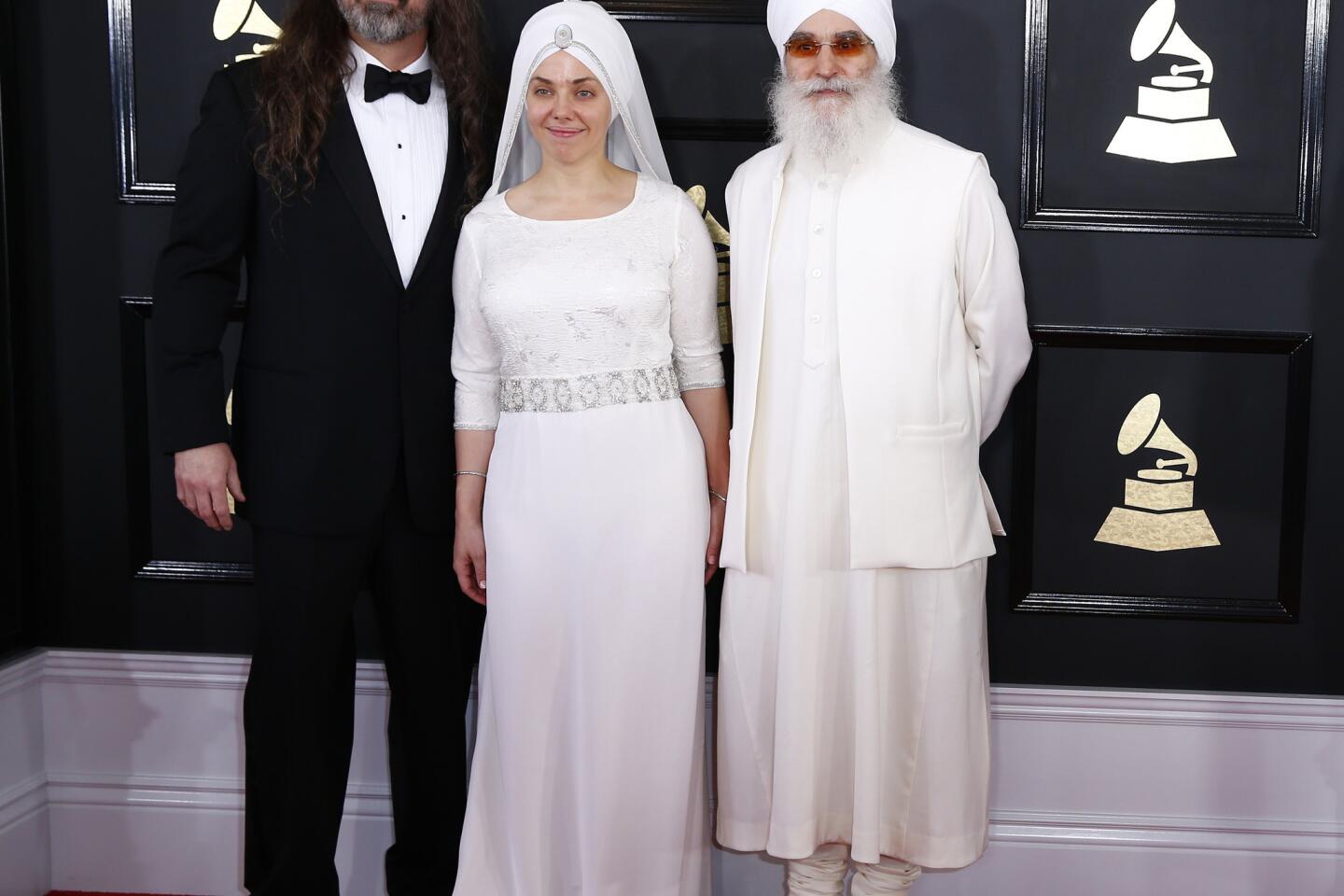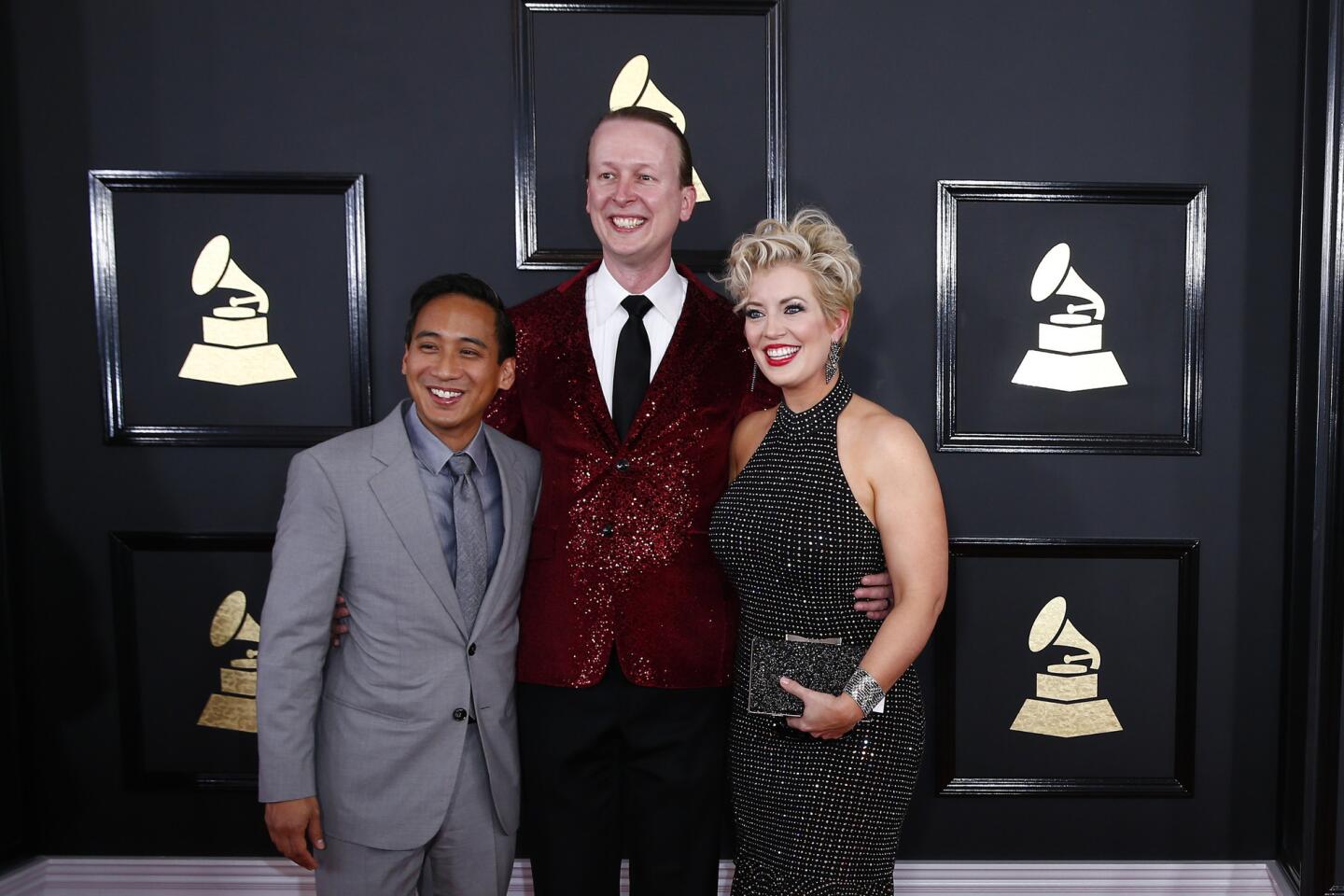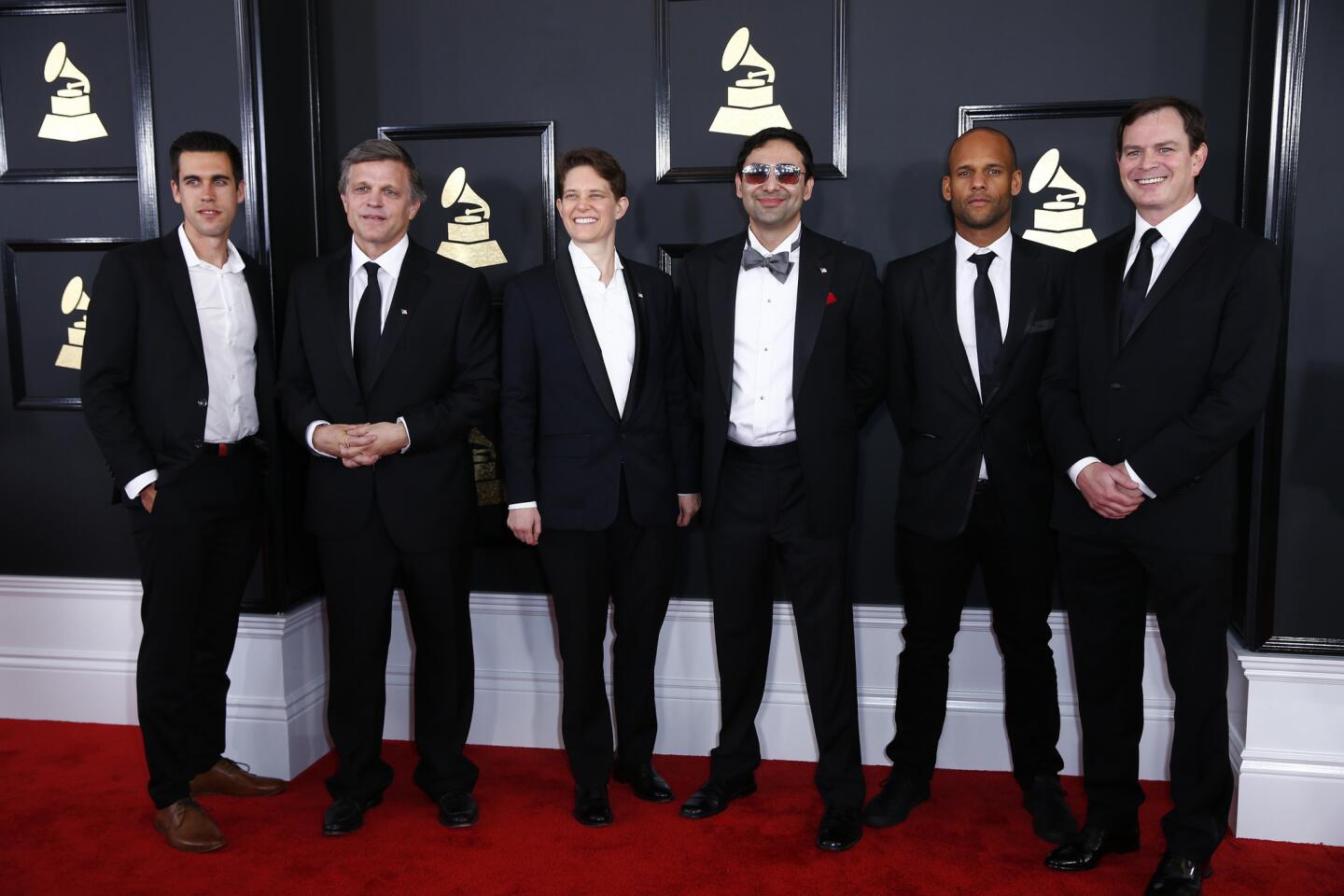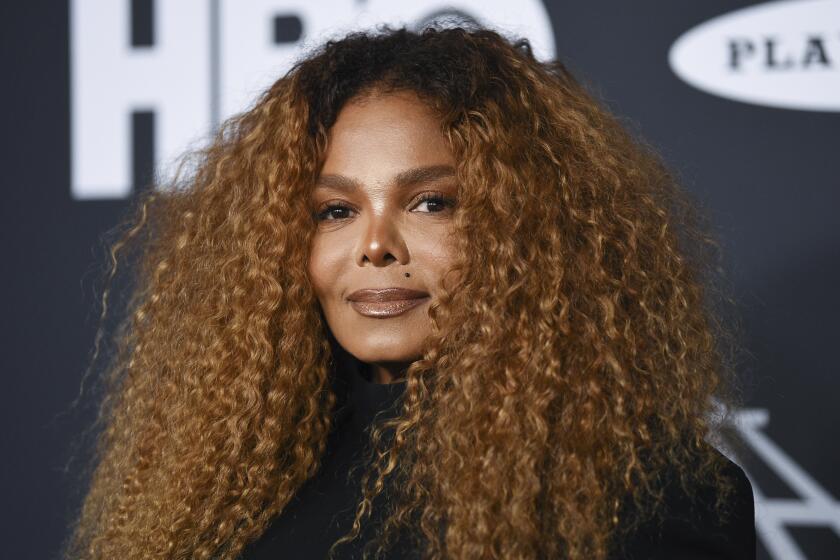As in almost every show in this volatile awards season, political protest was all over the Grammys this year. From subtle and poised to outraged and esoteric, resistance came from artists of all genres and will likely be a major part of what this contentious Grammy ceremony will be remembered for.
Far from avoiding the obvious tension in American political life, Grammy producer Ken Ehrlich encouraged artists before the show to say as much about it as they could during their sets.
“If you have record labels and such to thank, please thank them later backstage with the press and say something important,” he said. “We’re expecting it.”
Many accepted his invitation. In an awards season marked by political activism — at the Golden Globes, Meryl Streep lectured President Trump on civility, Screen Actors Guild Awards winners denounced Trump’s travel ban — no doubt more than a few viewers tuned in to see what the music community, long outspoken on leftist causes, would have to say.
FULL COVERAGE: Grammys 2017 »
When it came to speeches, the artists at the prime-time Grammy telecast were relatively subdued. They seemed to heed the words of Recording Academy board member John Poppo, who in the early afternoon at a preshow said, “People can have ideologies that are so different that they’re willing to wage war over them, and yet very often they’re singing the same songs on both sides of the battlefield.”
So they let the music do the talking.
At night, there was A Tribe Called Quest’s absolute demolition derby of a live performance. Joined by Busta Rhymes and Anderson .Paak, they coined a new, instantly trending epithet for Donald Trump (“President Agent Orange”). And that was maybe the softest blow the combo struck.
“I just want to thank President Agent Orange for perpetuating all of the evil you been perpetuating throughout the United States,” Rhymes snarled.
The centerpiece of the act’s set was the comeback single “We the People,” which hit with a whole new fury in the wake of current events: “All the black folks, you must go/ All the Mexicans, you must go/ All the poor folks, you must go/ Muslims and gays, we hate your ways.”
Tribe founder Q-Tip put it even more succinctly: “Resist! Resist!”
1/53
Rihanna arrives at the 59th Grammy Awards.
(Marcus Yam / Los Angeles Times) 2/53
Lady Gaga arrives at the 59th Grammy Awards.
(Alberto E. Rodriguez / Getty Images for NARAS) 3/53
Adele arrives at the 59th Grammy Awards.
(Marcus Yam / Los Angeles Times) 4/53
Jennifer Lopez arrives at the 59th Grammy Awards.
(Marcus Yam / Los Angeles Times) 5/53
Chrissy Teigen and John Legend arrive at the 59th Grammy Awards.
(Marcus Yam / Los Angeles Times) 6/53
Katy Perry arrives at the 59th Grammy Awards.
(Marcus Yam / Los Angeles Times) 7/53
CeeLo Green alter ego Gnarly Davidsonn arrive at the 59th Annual Grammy Awards.
(Marcus Yam / Los Angeles Times) 8/53
Host James Corden and Julia Carey arrive at the 59th Grammy Awards.
(Marcus Yam / Los Angeles Times) 9/53
Chance the Rapper arrives at the 59th Grammy Awards.
(Marcus Yam / Los Angeles Times) 10/53
Celine Dion arrives at the 59th Grammy Awards.
(Marcus Yam / Los Angeles Times) 11/53
From left, Jack Lawless, JinJoo Lee, Joe Jonas and Cole Whittle of DNCE arrive at the 59th Grammy Awards.
(Marcus Yam / Los Angeles Times) 12/53
Carrie Underwood arrives at the 59th Grammy Awards.
(Marcus Yam / Los Angeles Times) 13/53
Solange Knowles arrives at the 59th Grammy Awards.
(Marcus Yam / Los Angeles Times) 14/53
Demi Lovato arrives at the 59th Grammy Awards.
(Marcus Yam / Los Angeles Times) 15/53
Laverne Cox arrives at the 59th Grammy Awards.
(Marcus Yam / Los Angeles Times) 16/53
Lea Michele arrives at the 59th Grammy Awards.
(Marcus Yam / Los Angeles Times) 17/53
Kool and The Gang arrive at the 59th Grammy Awards.
(Marcus Yam / Los Angeles Times) 18/53
From left, Jimi Westbrook, Karen Fairchild, Kimberly Schlapman and Philip Sweet of Little Big Town arrive at the 59th Grammy Awards.
(Frazer Harrison / Getty Images) 19/53
Jason Derulo arrives at the 59th Grammy Awards.
(Joe Scarnici / Getty Images for FIJI Water) 20/53
Leon Bridges, left, and Brittni Jessie arrive at the 59th Grammy Awards.
(Jordan Strauss / Invision/AP) 21/53
Lars Ulrich of Metallica, at right, and Jessica Miller arrive at the 59th Grammy Awards.
(Frazer Harrison / Getty Images) 22/53
Charli XCX arrives at the 59th Grammy Awards.
(Christopher Polk / Getty Images for NARAS) 23/53
Cassadee Pope and Chris Young arrive at the 59th Grammy Awards.
(Marcus Yam / Los Angeles Times) 24/53
Rappers Rick Ross and Lil Yachty arrives at the 59th Grammy Awards.
(Christopher Polk / Getty Images for NARAS) 25/53
Nick Jonas arrives at the 59th Grammy Awards.
(Marcus Yam / Los Angeles Times) 26/53
Singer-songwriter Tinashe arrives at the 59th Grammy Awards.
(Frazer Harrison / Getty Images) 27/53
Heidi Klum arrives at the 59th Grammy Awards.
(Frazer Harrison / Getty Images) 28/53
Rapper Desiigner arrives at the 59th Grammy Awards.
(Alberto E. Rodriguez / Getty Images for NARAS) 29/53
Ryan Seacrest arrives at the 59th Grammy Awards.
(Frazer Harrison / Getty Images) 30/53
Girl Crush wears a dress of colorful balls during the arrivals at the 59th Grammy Awards.
(Marcus Yam / Los Angeles Times) 31/53
TV personality Giuliana Rancic arrives at the 59th Grammy Awards.
(Marcus Yam / Los Angeles Times) 32/53
Halsey arrives at the 59th Grammy Awards.
(Marcus Yam / Los Angeles Times) 33/53
Weezer arrives at the 59th Grammy Awards.
(Marcus Yam / Los Angeles Times) 34/53
Tori Kelly arrives at the 59th Grammy Awards.
(Frazer Harrison / Getty Images) 35/53
Rapper 2 Chainz arrives at the 59th Grammy Awards.
(Alberto E. Rodriguez / Getty Images for NARAS) 36/53
Elle King and Dierks Bentley arrive at the 59th Grammy Awards.
(Alberto E. Rodriguez / Getty Images for NARAS) 37/53
Camila Cabello arrives at the 59th Grammy Awards.
(Marcus Yam / Los Angeles Times) 38/53
LOS ANGELES, CA - February 12, 2017 Paris Jackson during the arrivals at the 59th Annual GRAMMY Awards at STAPLES Center in Los Angeles, CA. Sunday, February 12, 2017. (Marcus Yam / Los Angeles Times) (Marcus Yam / Los Angeles Times)
39/53
Kelsea Ballerini arrives at the 59th Grammy Awards.
(Alberto E. Rodriguez / Getty Images for NARAS) 40/53
The band Cage the Elephant arrives at the 59th Grammy Awards.
(Mark Ralston / AFP/Getty Images) 41/53
Musician Skrillex arrives at the 59th Grammy Awards.
(Alberto E. Rodriguez / Getty Images for NARAS) 42/53
The band Korn arrives at the 59th Grammy Awards.
(Marcus Yam / Los Angeles Times) 43/53
DJ Steve Aoki arrives at the 59th Grammy Awards.
(Alberto E. Rodriguez / Getty Images for NARAS) 44/53
Megadeth arrives at the 59th Grammy Awards.
(Marcus Yam / Los Angeles Times) 45/53
From left, Tim Nordwind, Damian Kulash, Dan Konopka, and Andy Ross of OK Go arrive at the 59th Grammy Awards.
(Jordan Strauss / Invision/AP) 46/53
Gaby Moreno arrives at the 59th Grammy Awards.
(Marcus Yam / Los Angeles Times) 47/53
Electronic/dance nominees Riton and Kah-Lo arrive at the 59th Grammy Awards.
(Marcus Yam / Los Angeles Times) 48/53
Raging Fyah arrive at the 59th Grammy Awards.
(Marcus Yam / Los Angeles Times) 49/53
Blink-182 arrives at the 59th Grammy Awards.
(Marcus Yam / Los Angeles Times) 50/53
Patton Oswalt arrives at the 59th Grammy Awards.
(Marcus Yam / Los Angeles Times) 51/53
New Age nominees White Sun (Adam Berry, Gurujaas and Hari Jiwan Singh Khalsa) arrive at the 59th Grammy Awards.
(Marcus Yam / Los Angeles Times) 52/53
Mela Dailey, Carr Hornbuckle and Rikk Gabrillo arrive at the 59th Grammy Awards.
(Marcus Yam / Los Angeles Times) 53/53
Ted Nash Big Band arrives at the 59th Grammy Awards.
(Marcus Yam / Los Angeles Times) Katy Perry didn’t come with quite the same rage, but the longtime Hillary Clinton supporter did perform with a stiffer political spine than fans have ever seen from her. Dressed in a “Persist” armband and a Clinton-inspired white pantsuit, she played “Chained to the Rhythm,” her most overtly topical single to date: “So comfortable, we’re living in a bubble/ So comfortable, we cannot see the trouble.”
In front of a Constitution graphic with collaborator Skip Marley, it wasn’t subtle, but it was a new kind of Katy Perry.
And of course, there was Beyoncé.
Her performance of “Love Drought” and “Sandcastles” was immediately, universally lauded for its psychedelic religious imagery. But the act of performing on the Grammy stage while reveling in her pregnant form was itself a work of performance-art resistance.
Her follow-up speech didn’t mention the specifics of our political climate, but it didn’t need to: “My intention for the film and album was to create a body of work that would give a voice to our pain, our struggles, our darkness and our history,” she said. “To confront issues that make us uncomfortable.”
She added, “I feel it’s vital that we learn from the past and recognize our tendencies to repeat our mistakes.”
Many Beyoncé fans will feel that not awarding her album of the year is another example of the Grammys repeating past mistakes. But as is usually the case, Beyoncé had even bigger things on her mind that night.
august.brown@latimes.com
